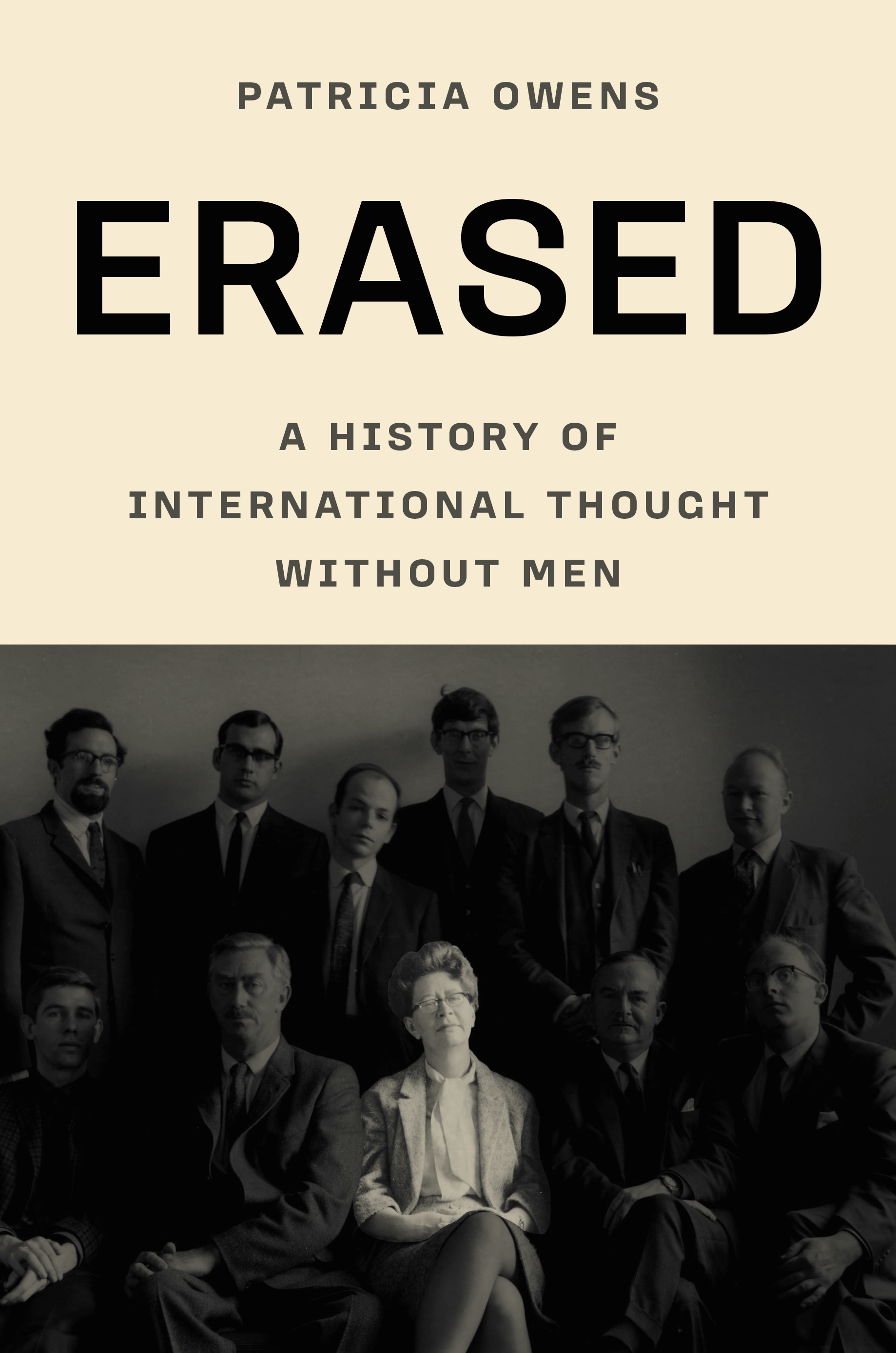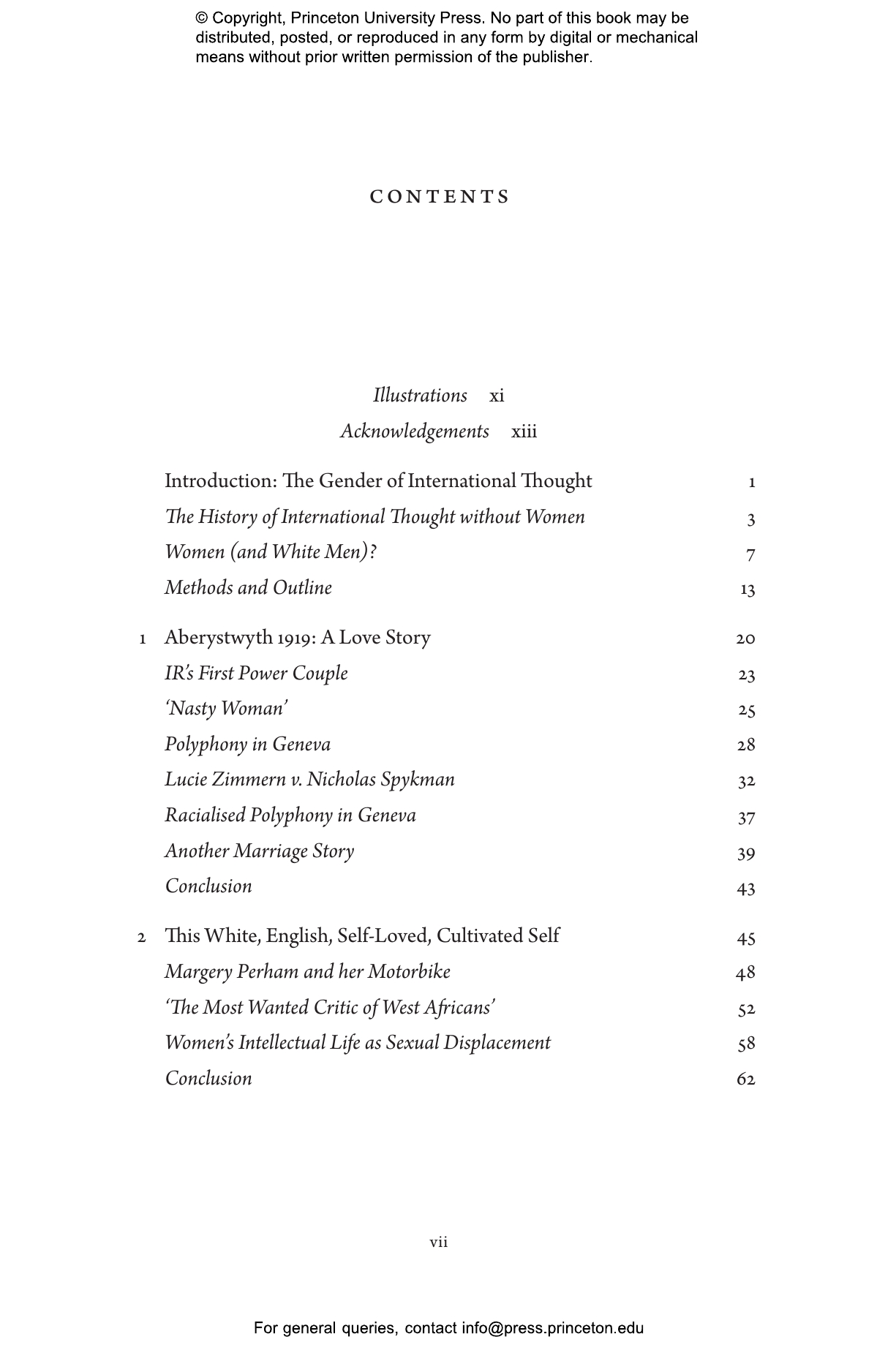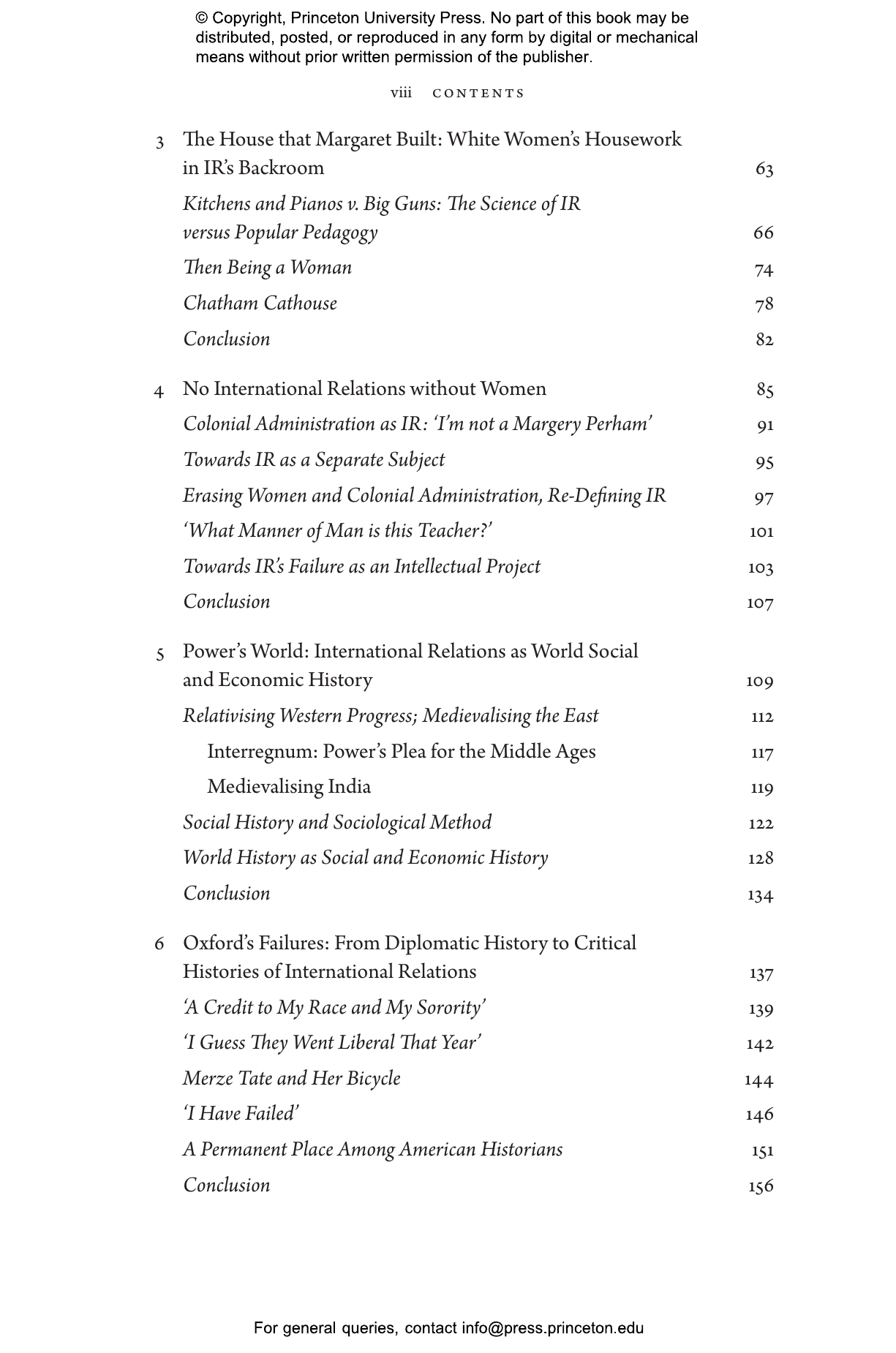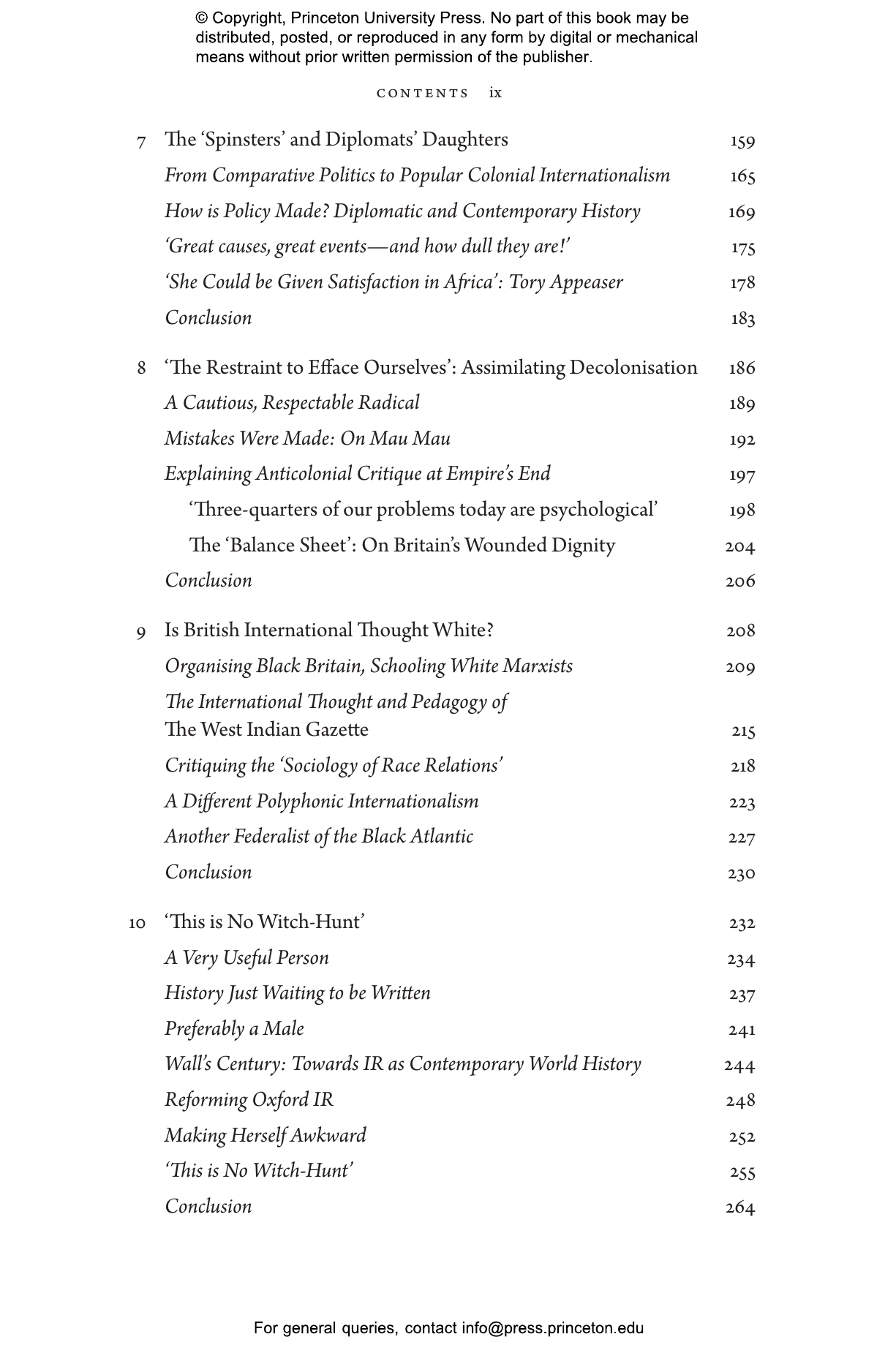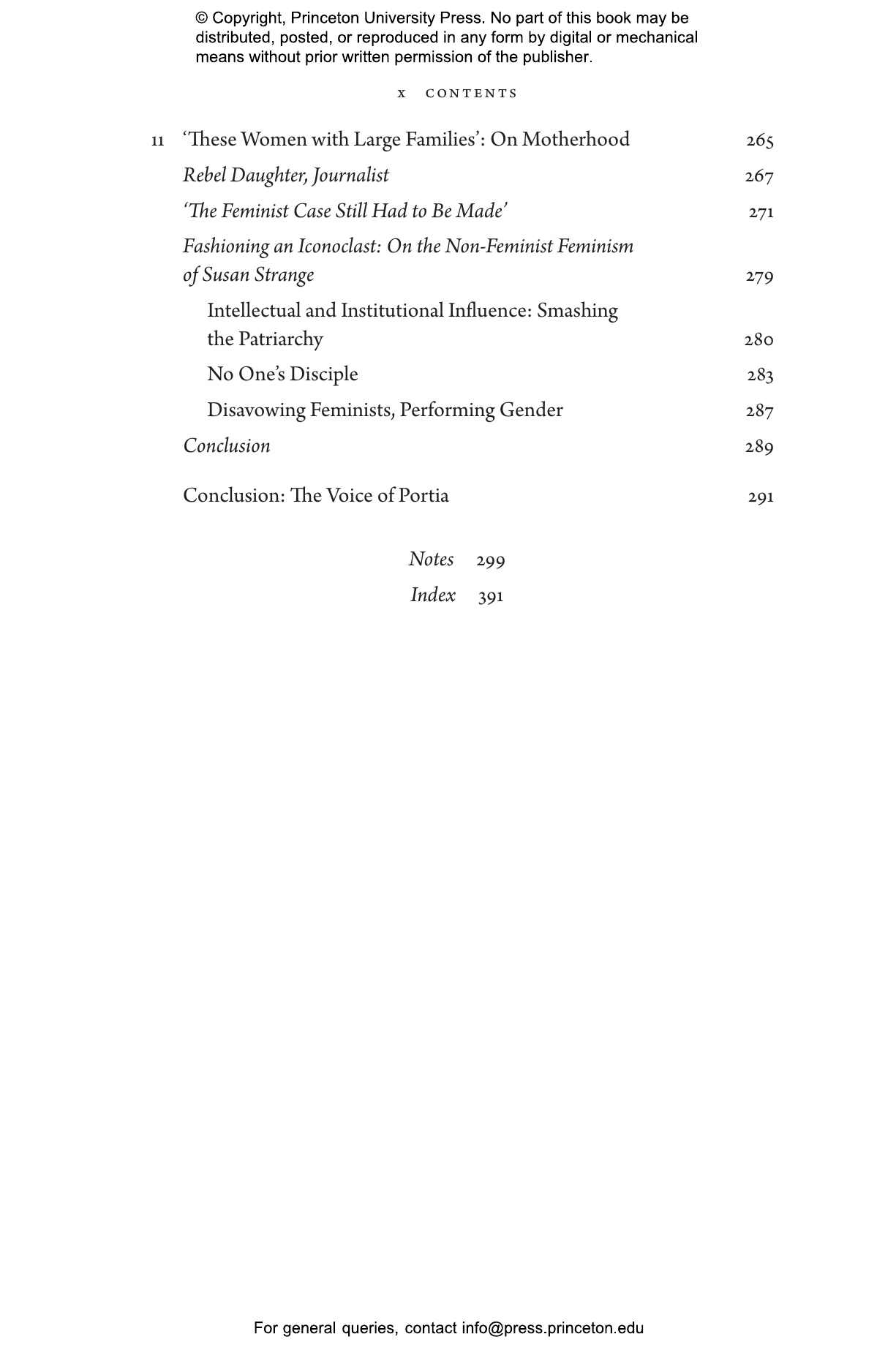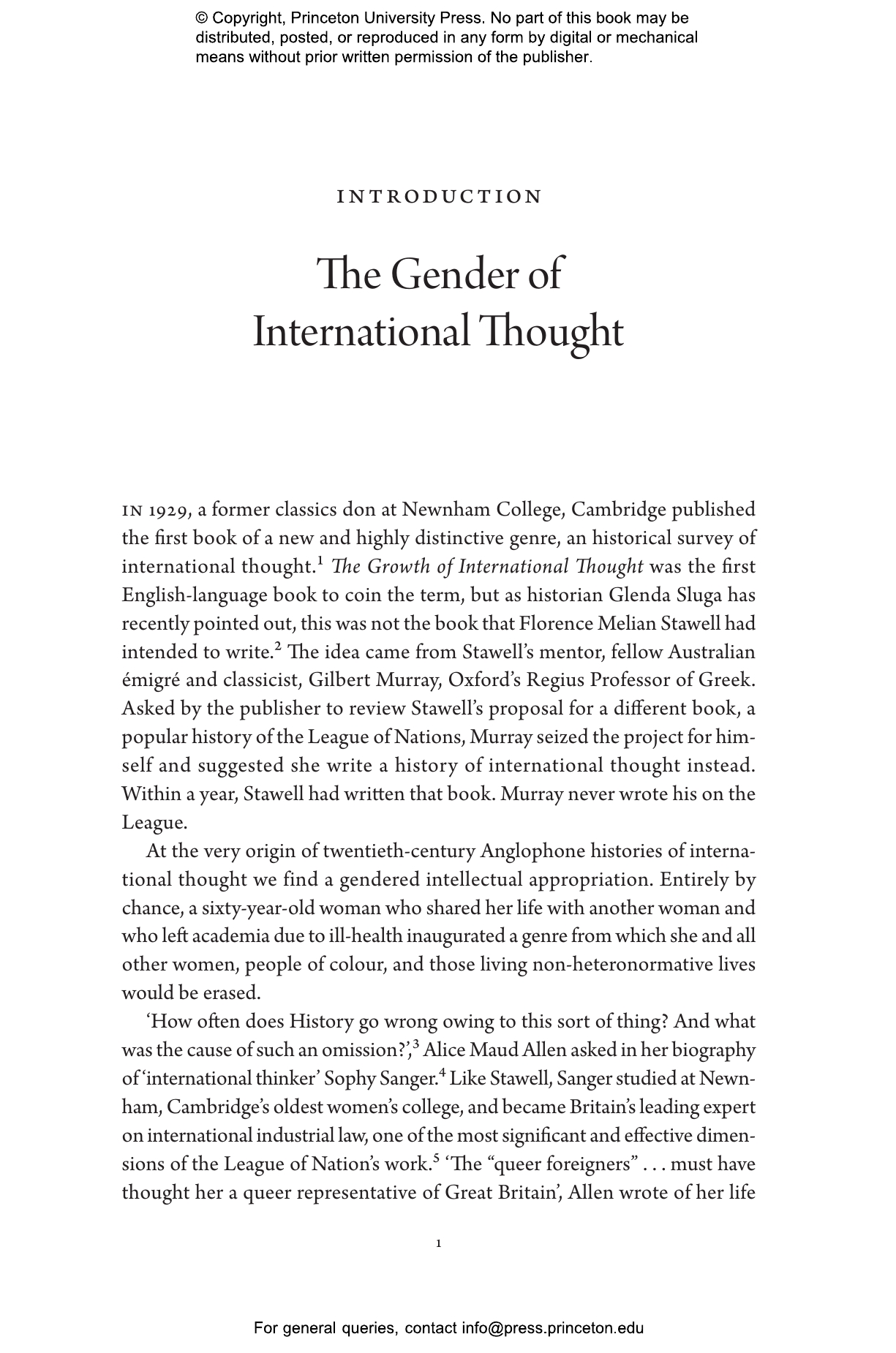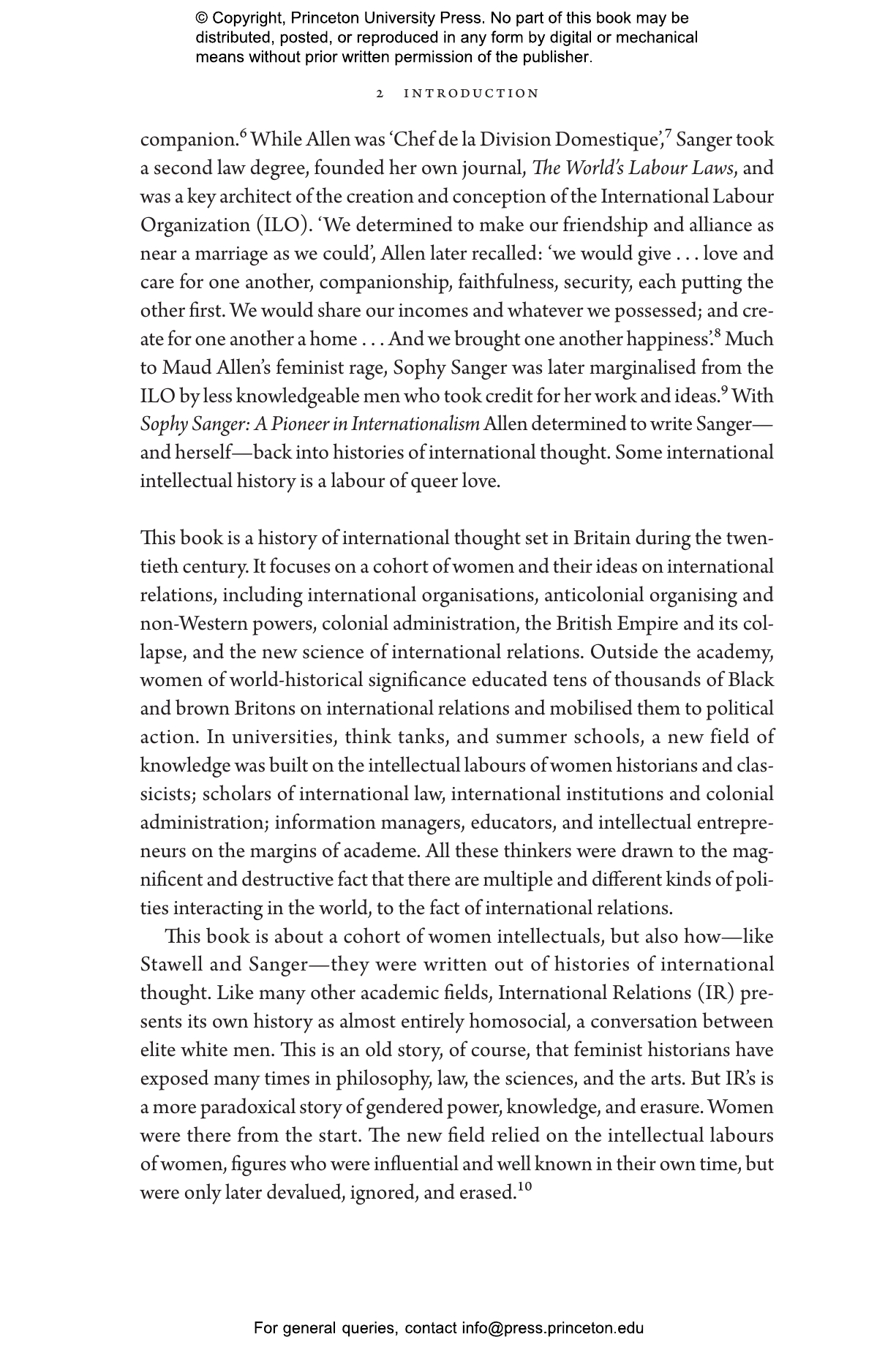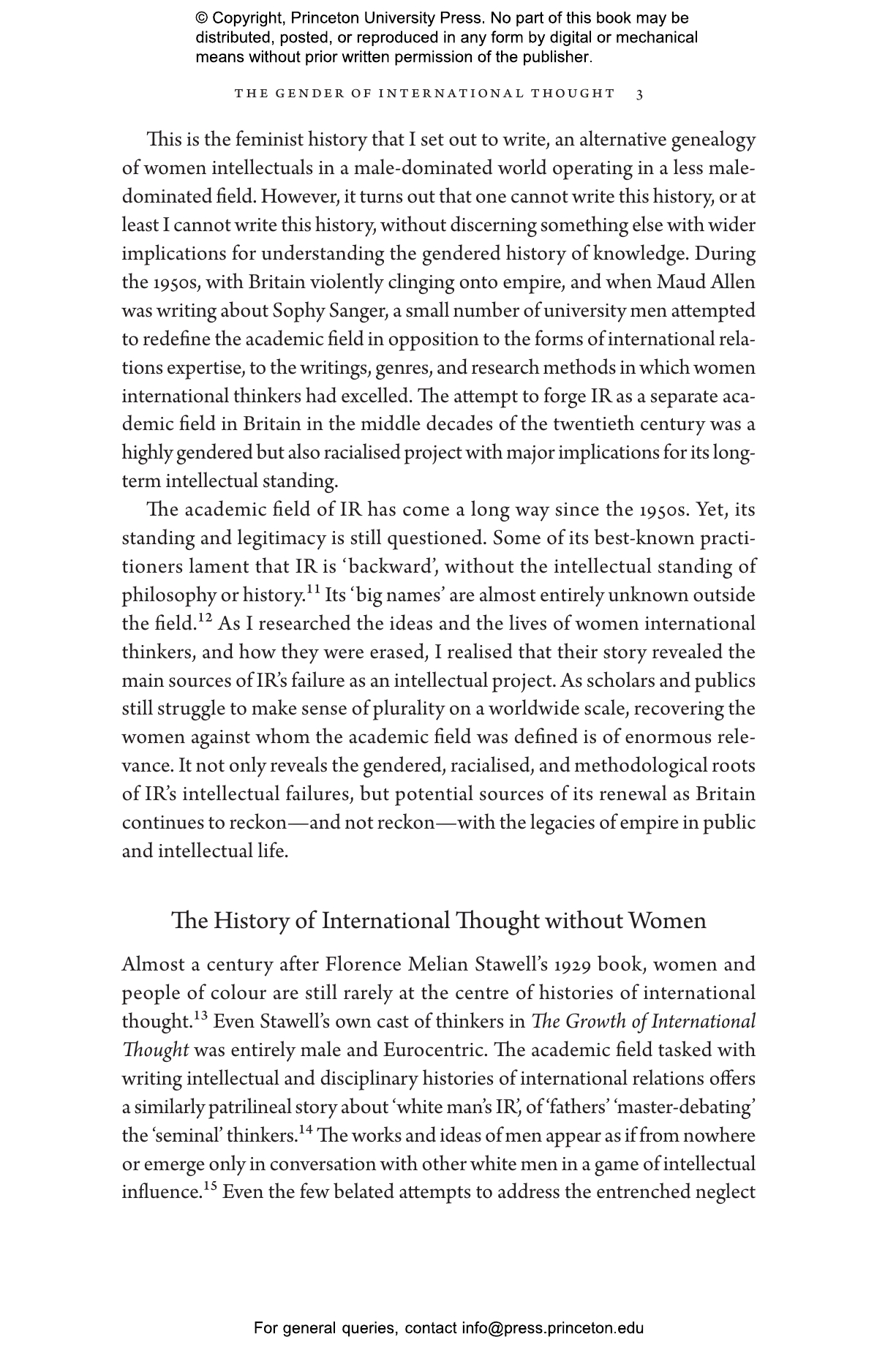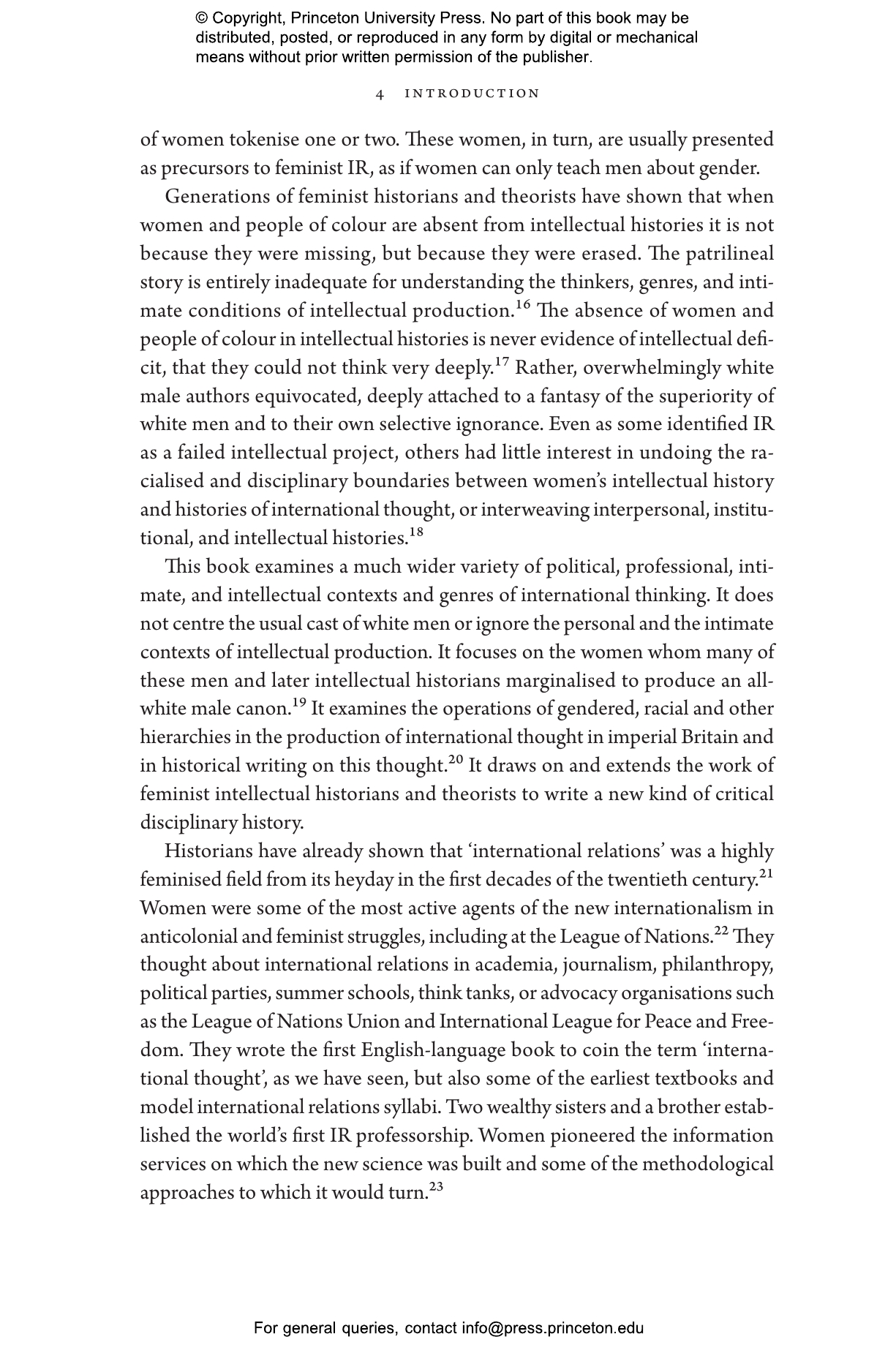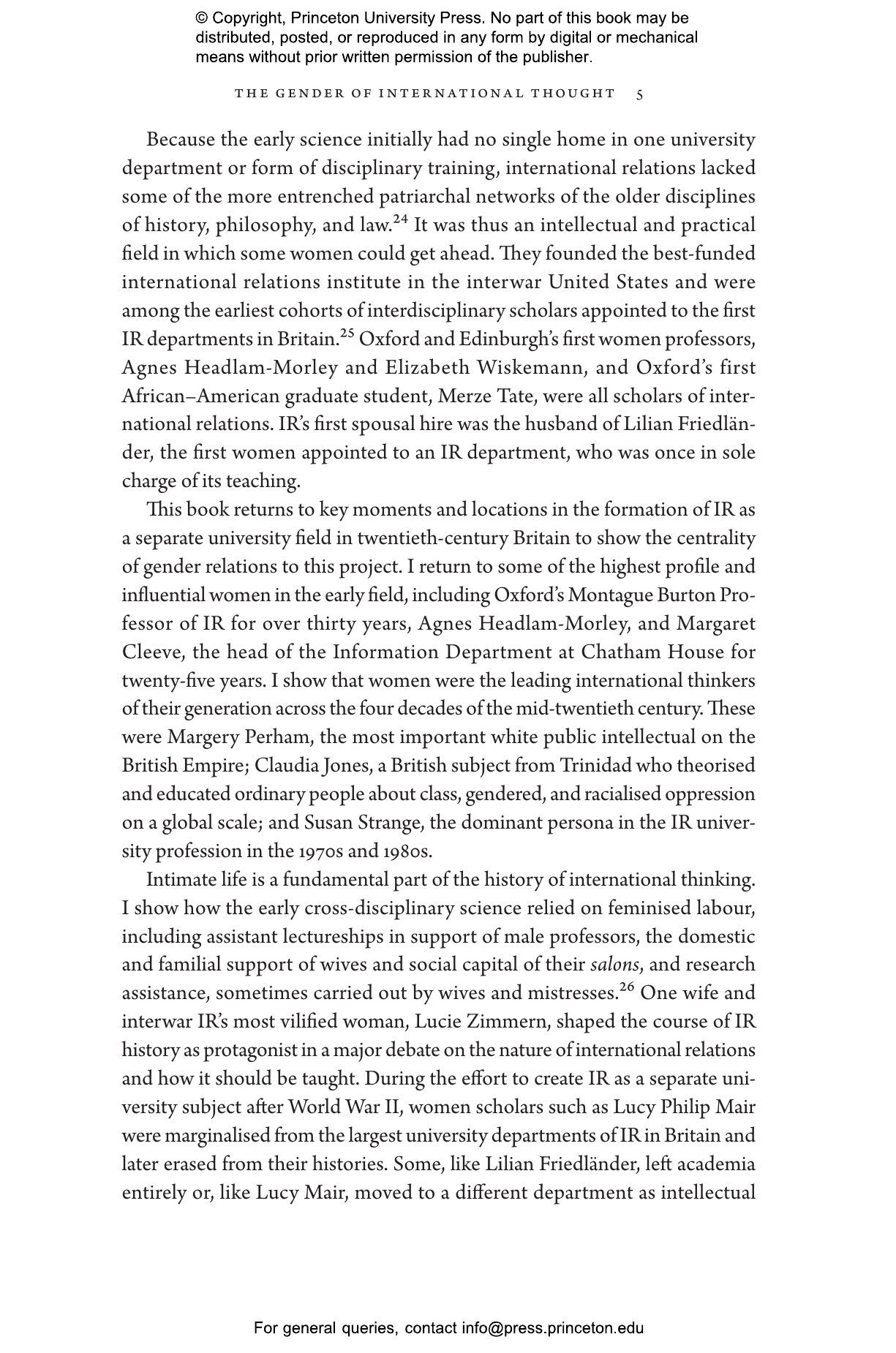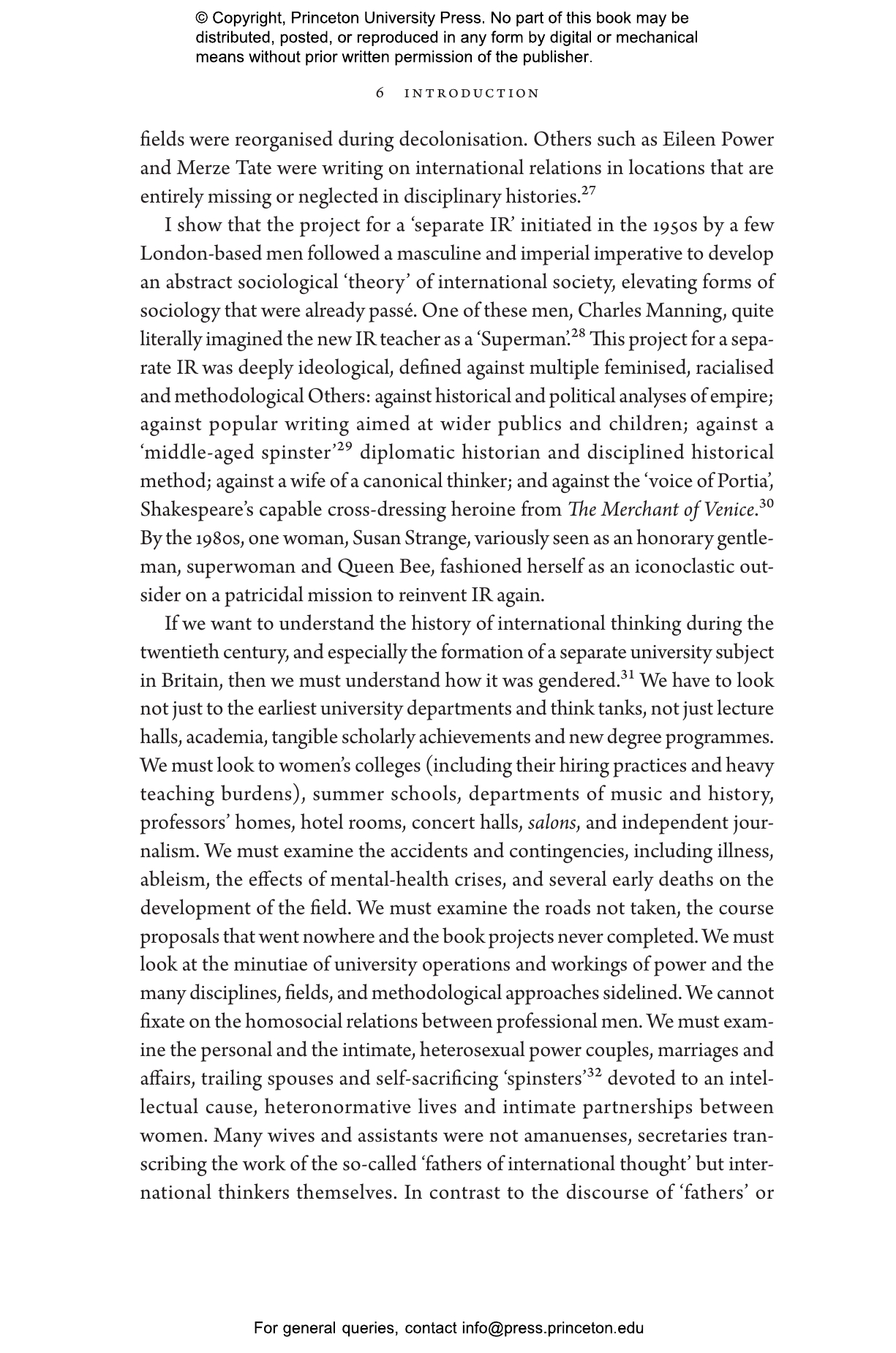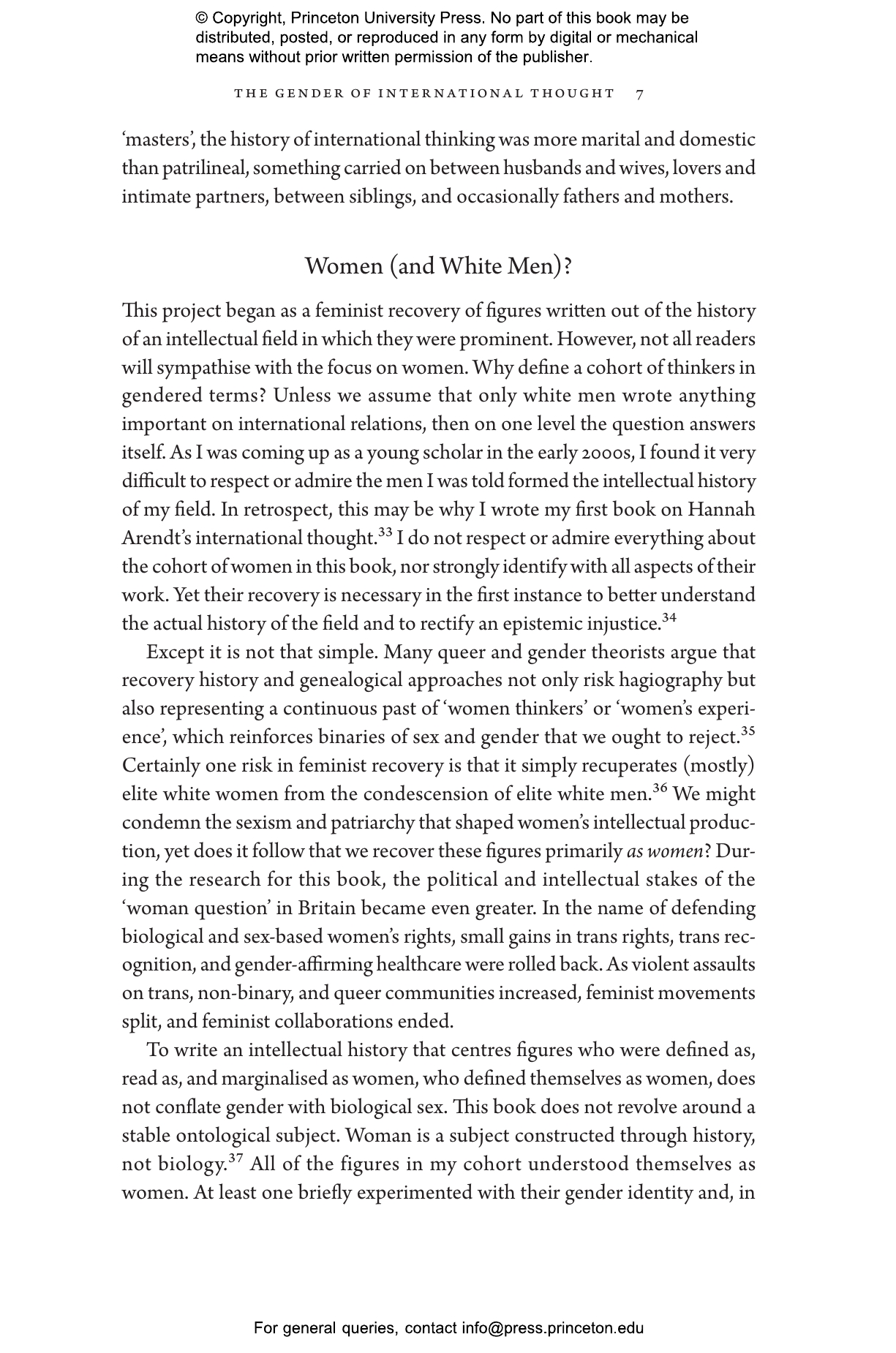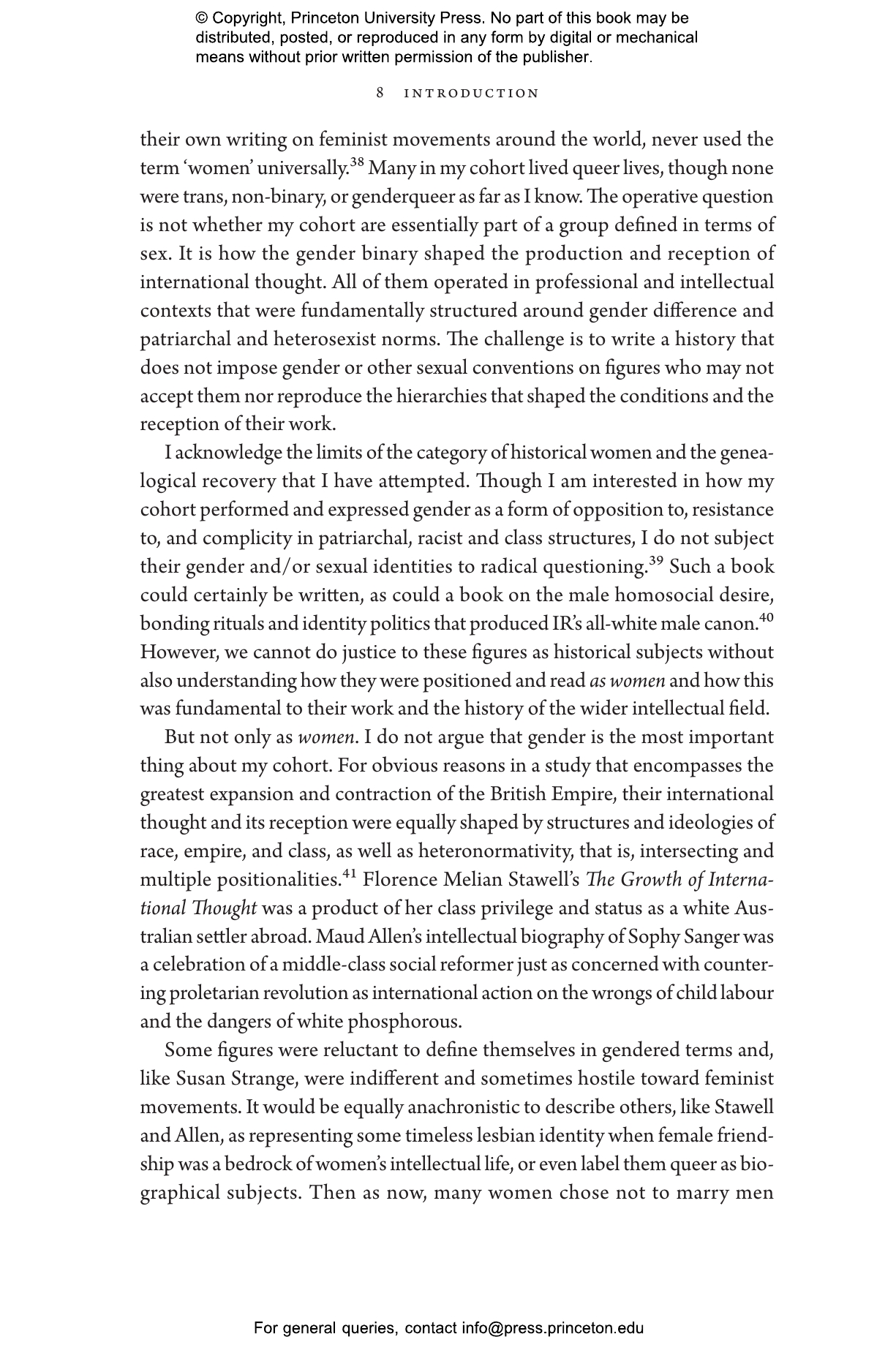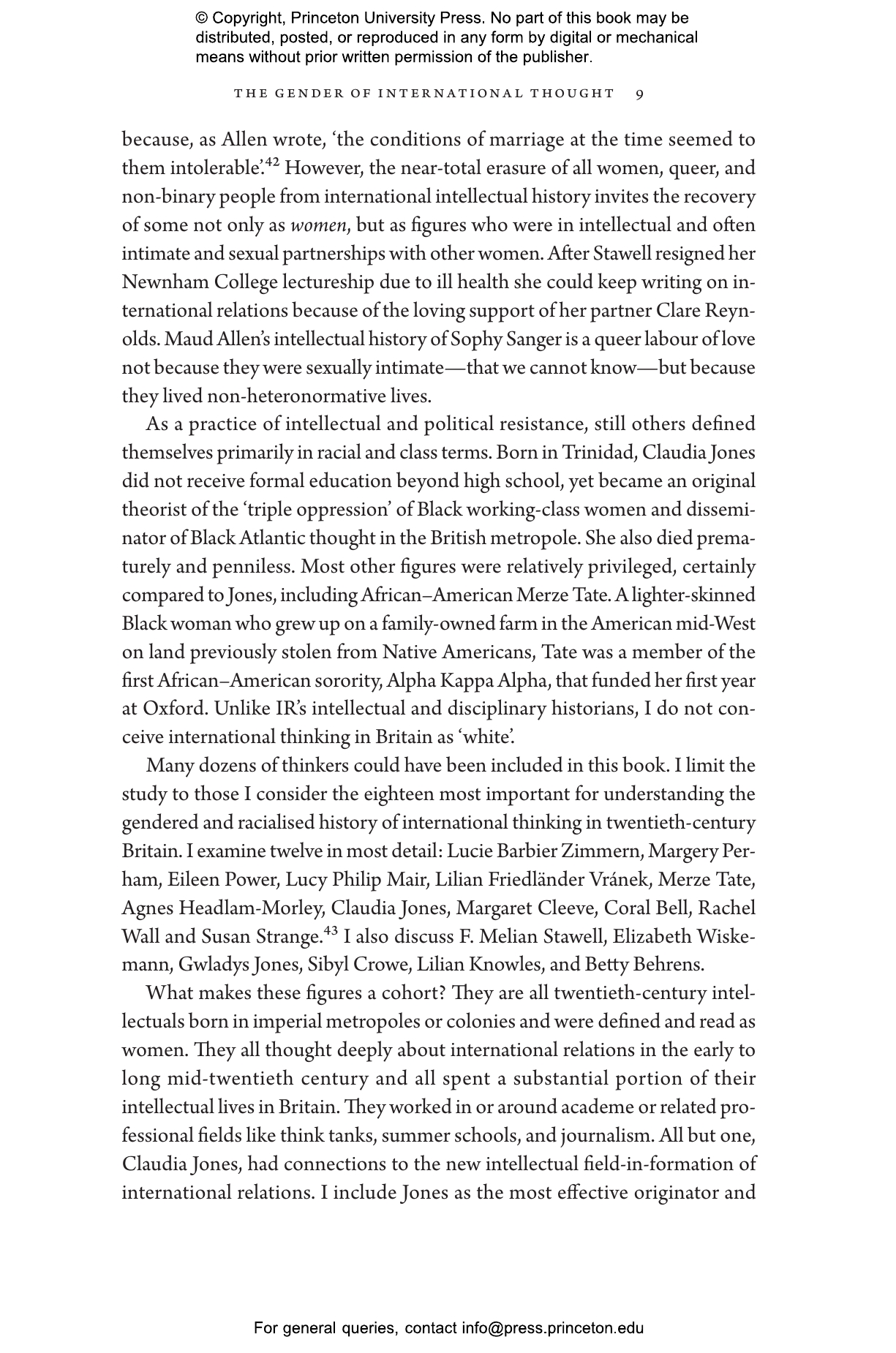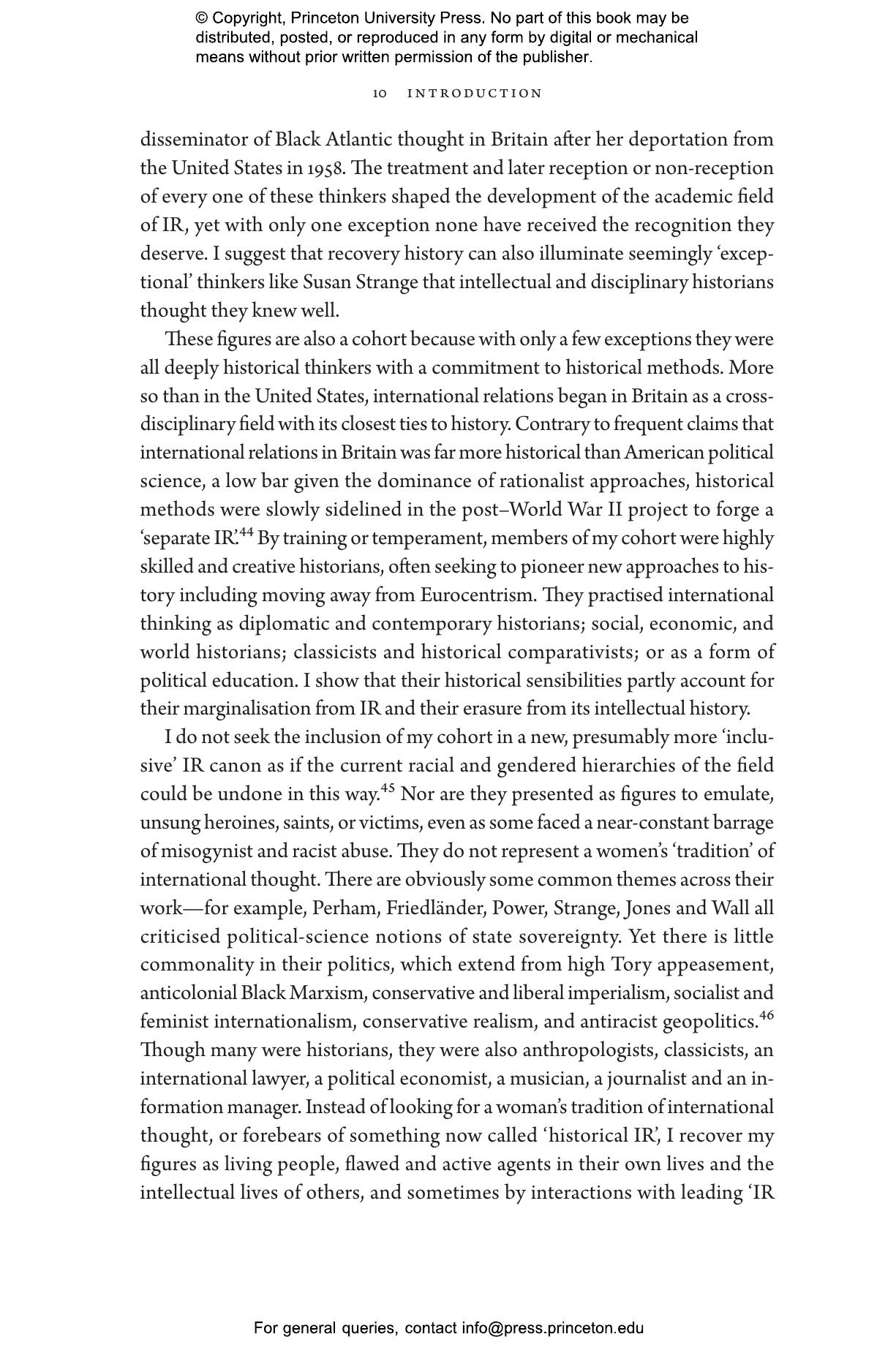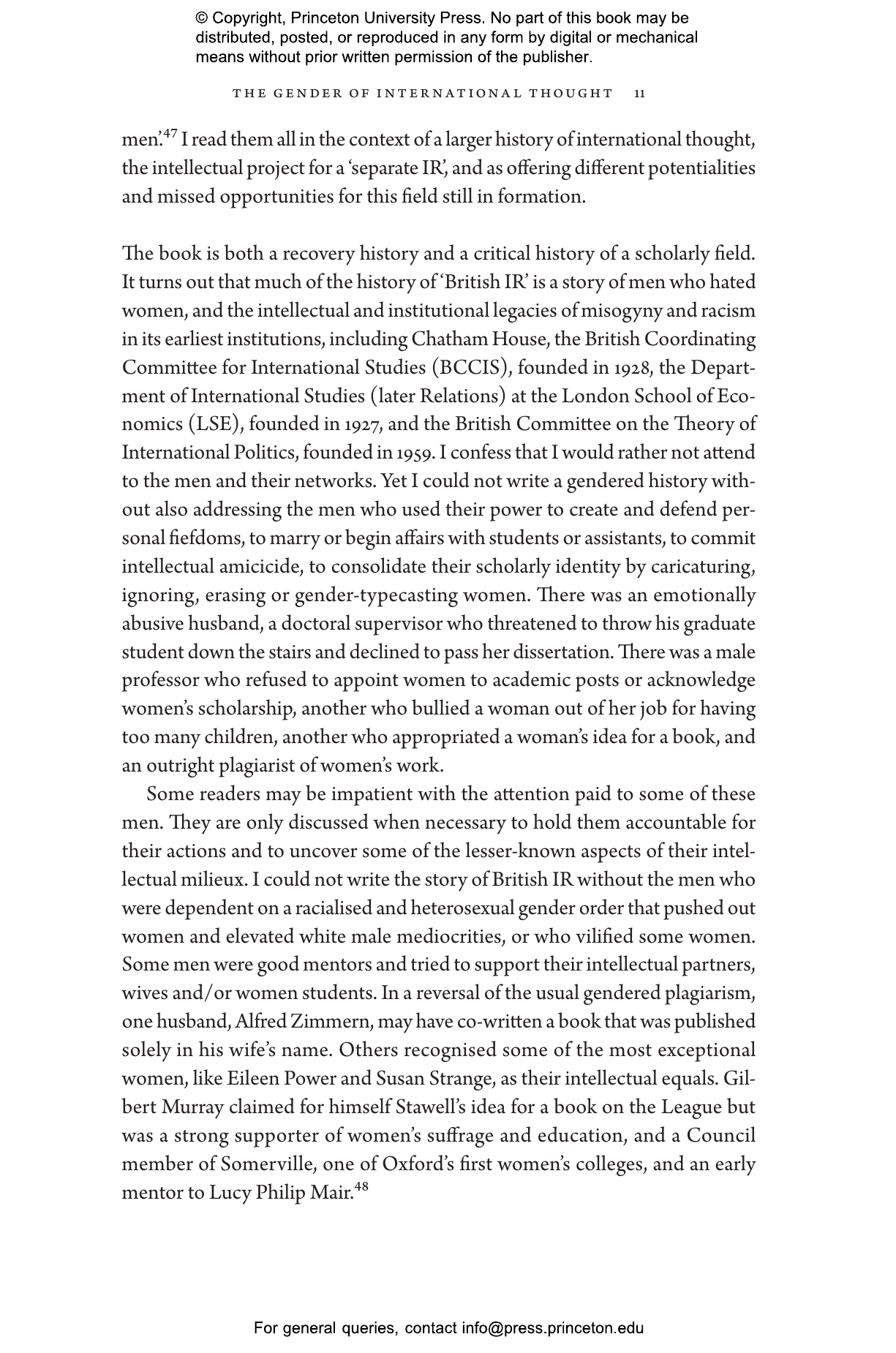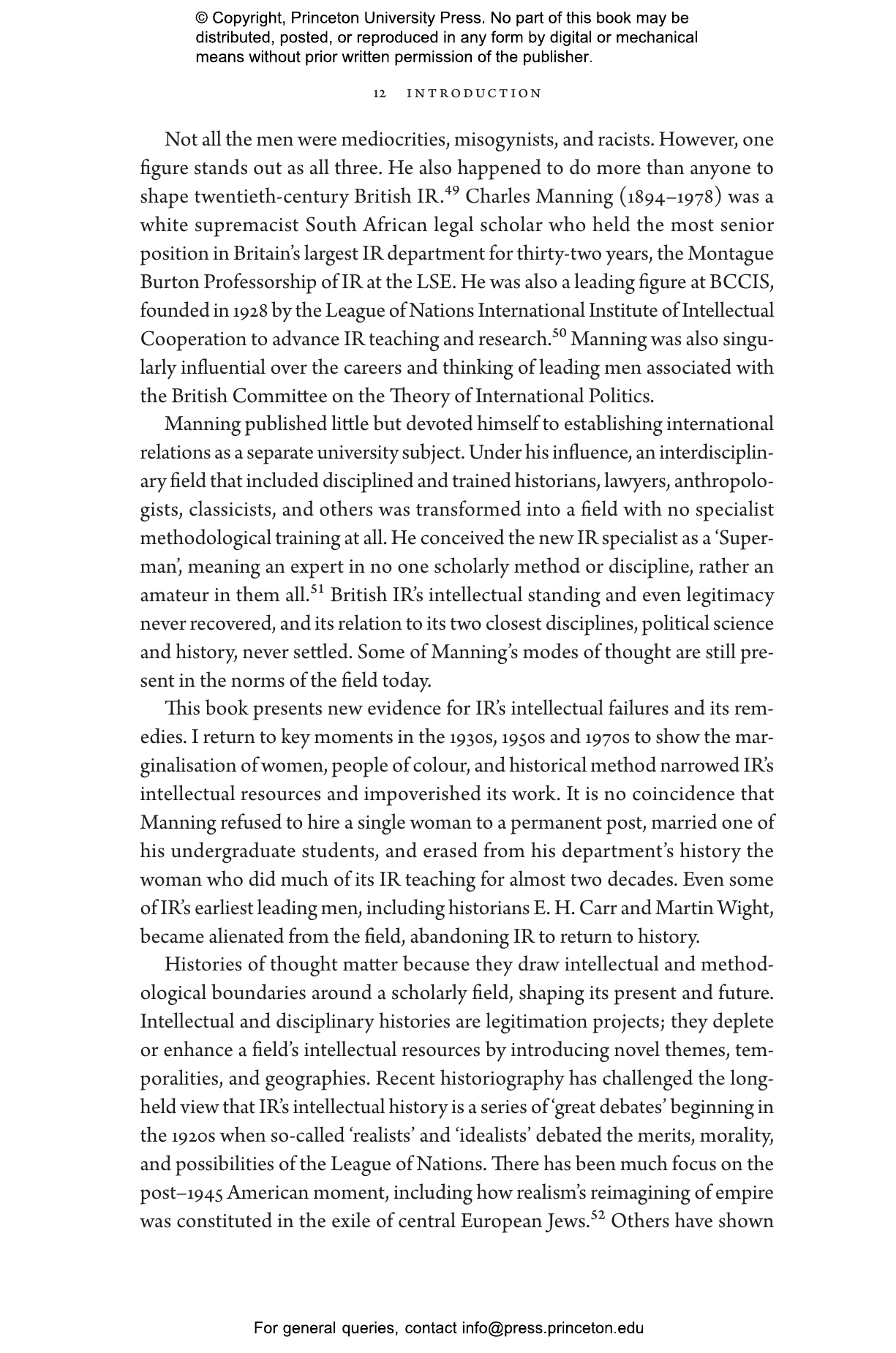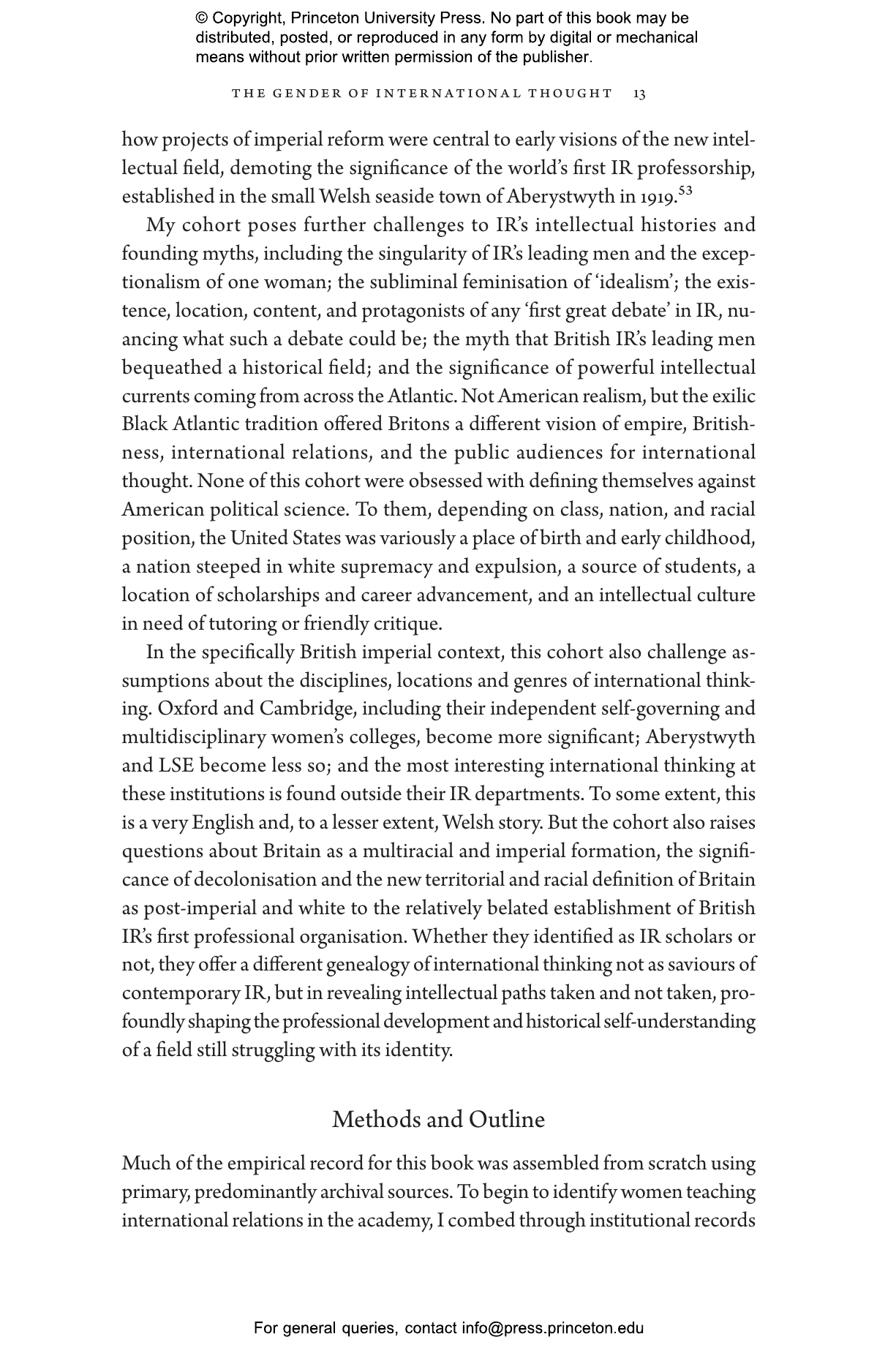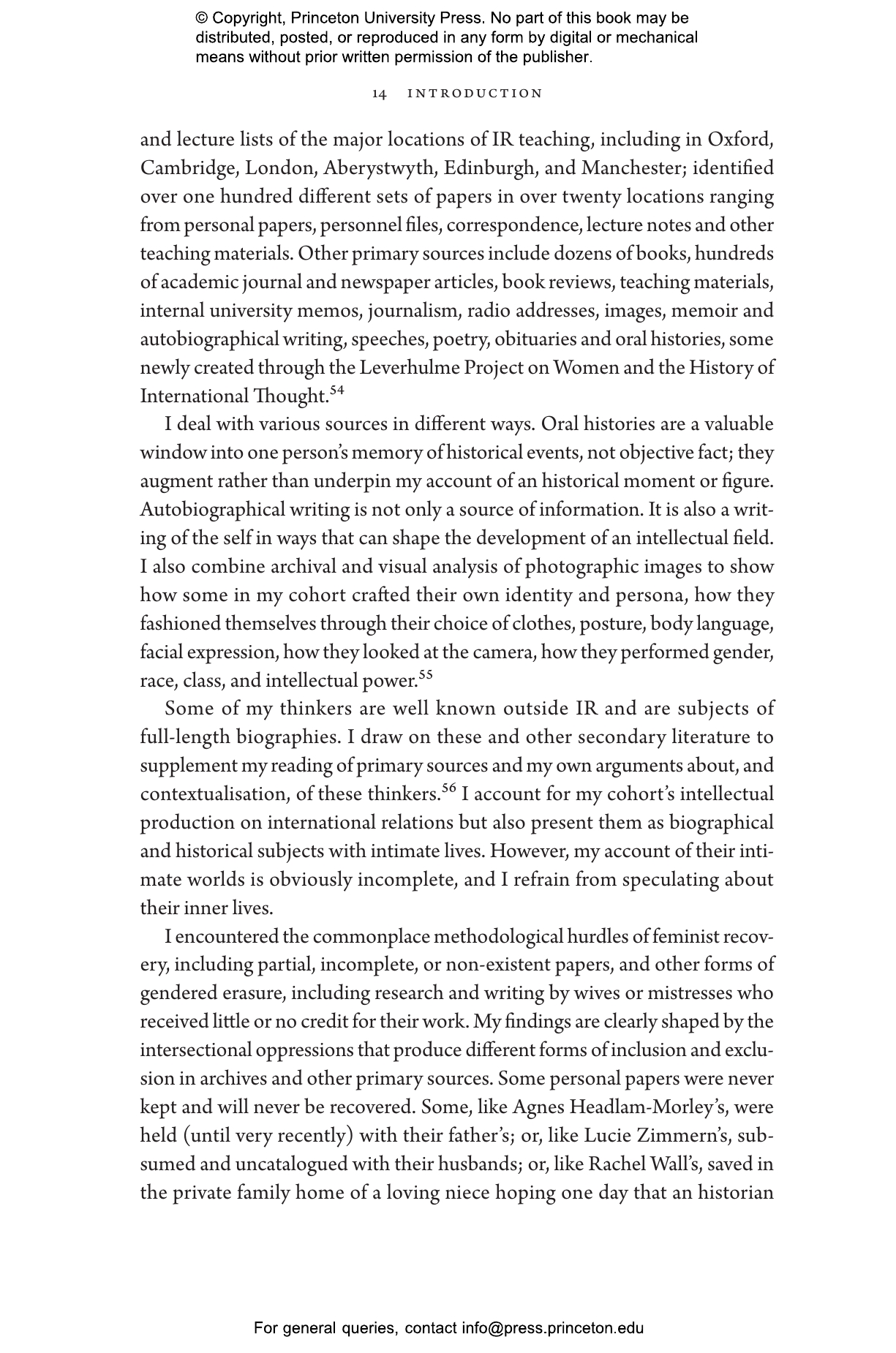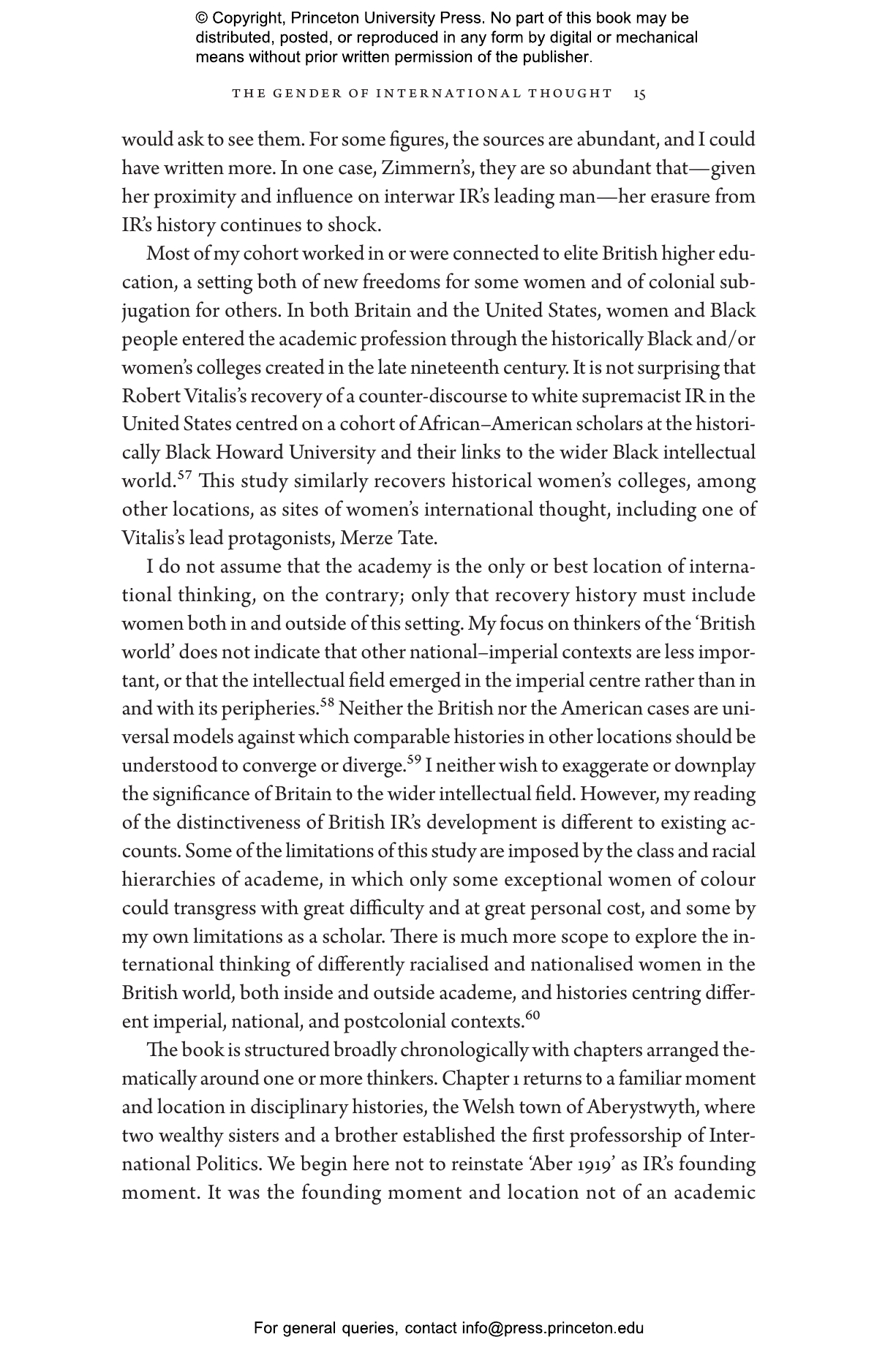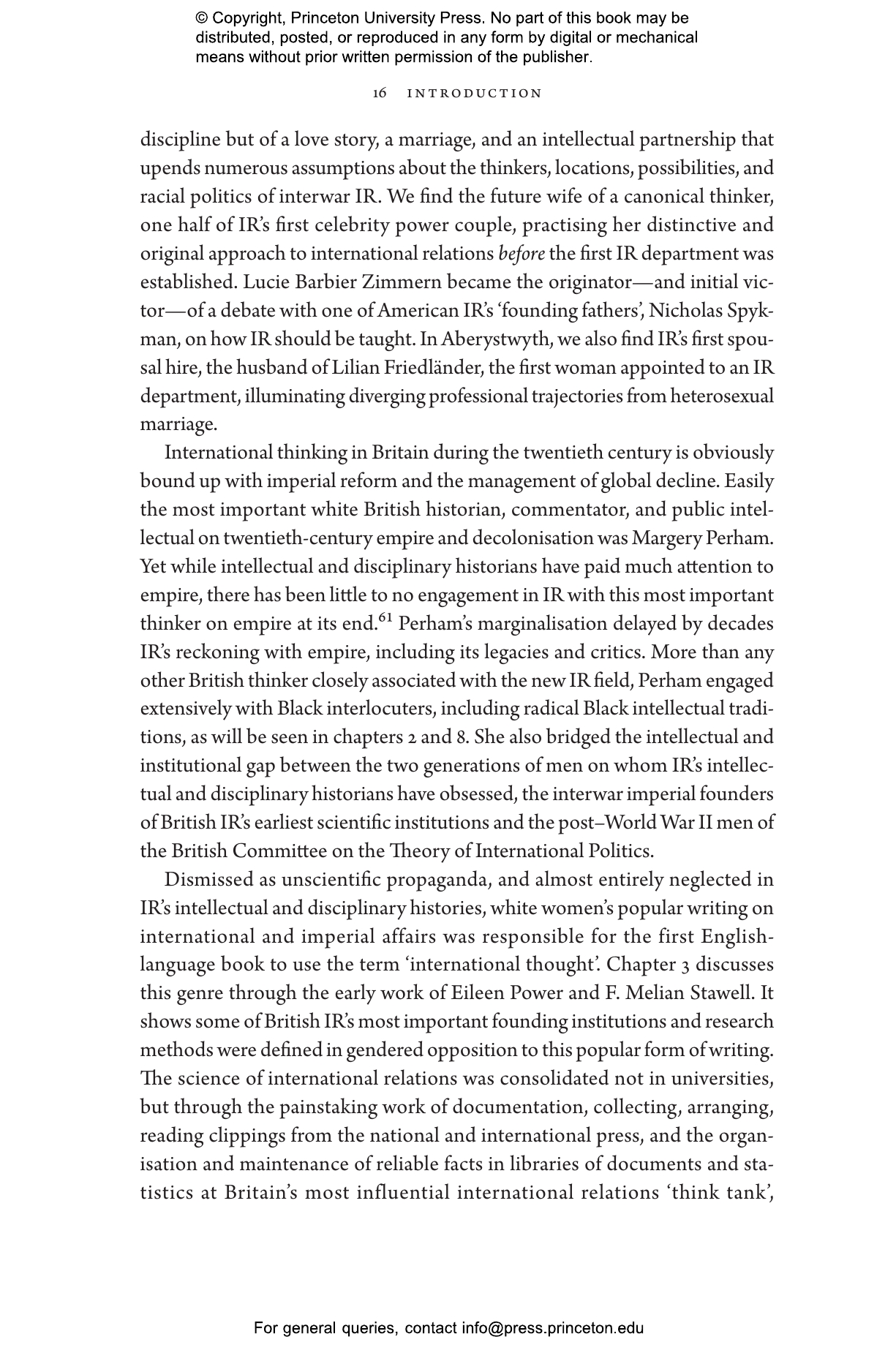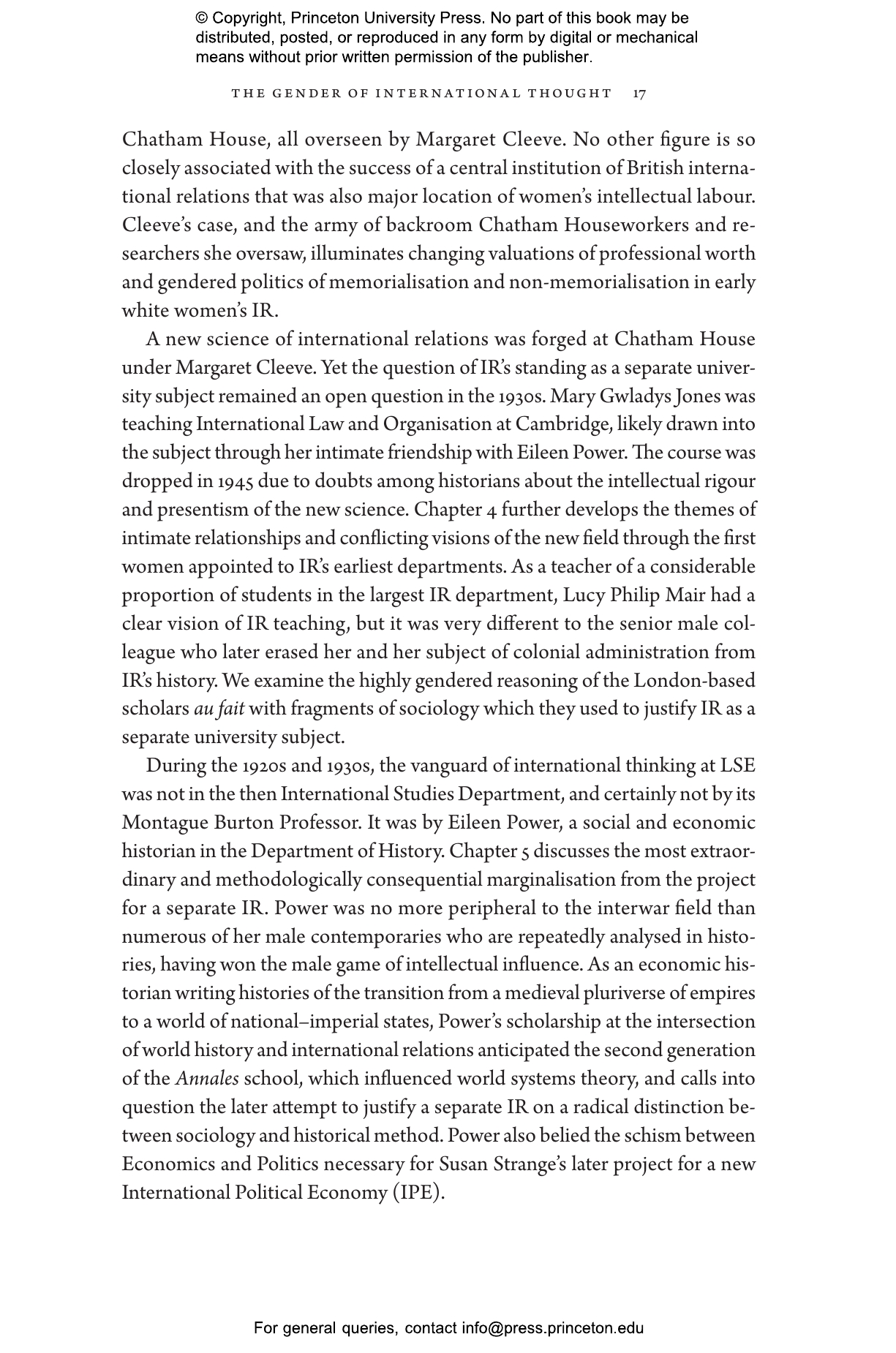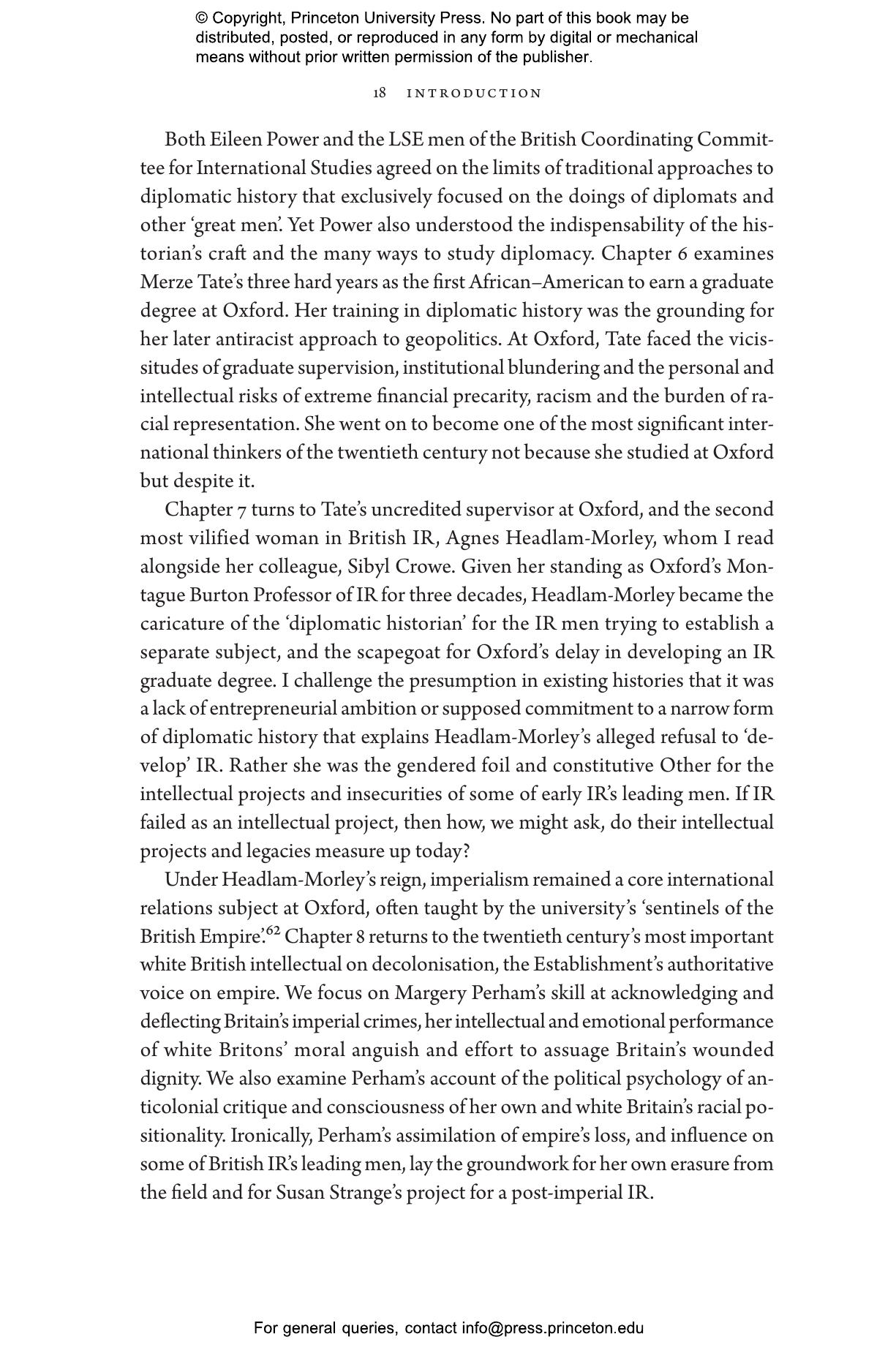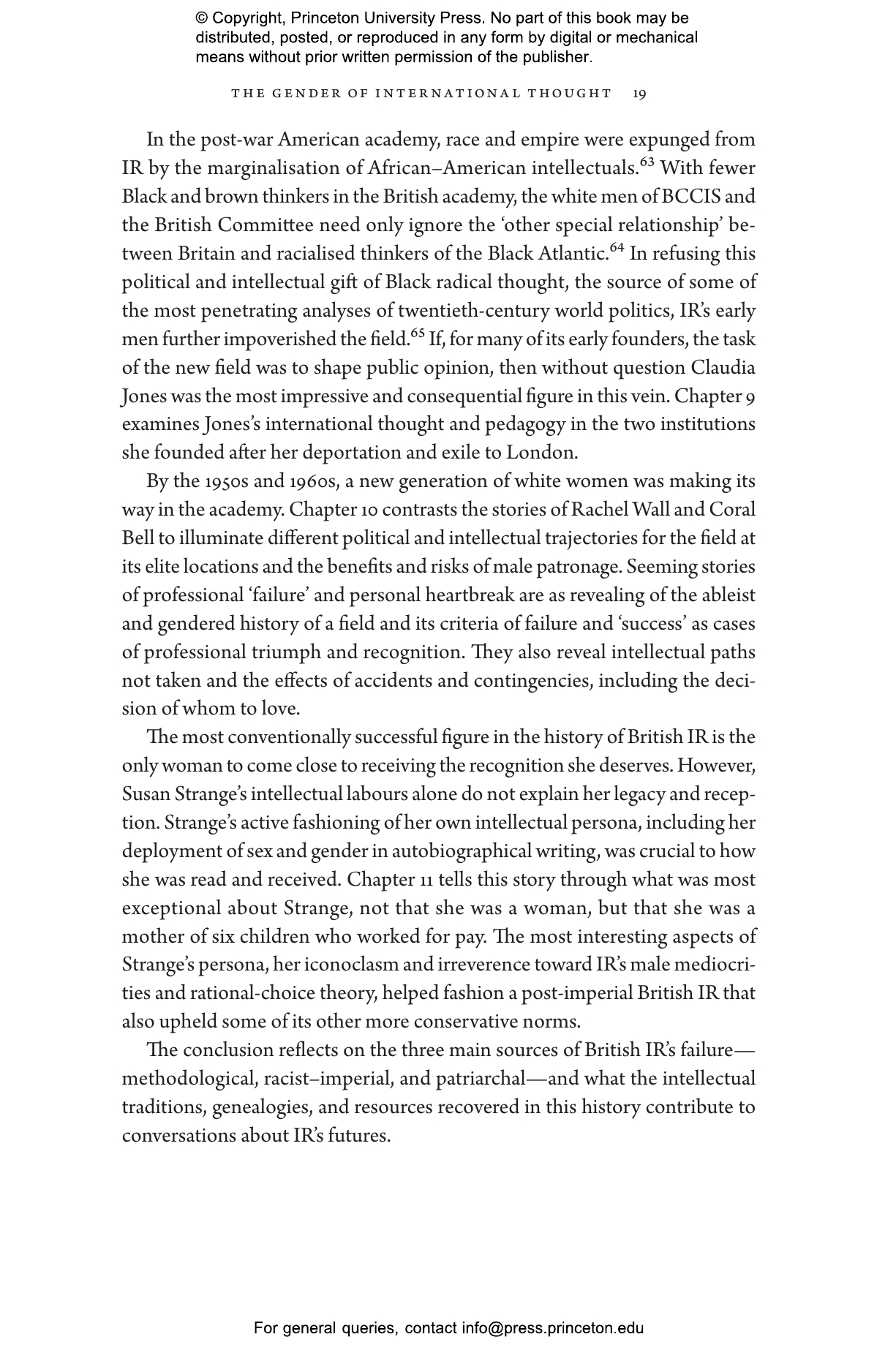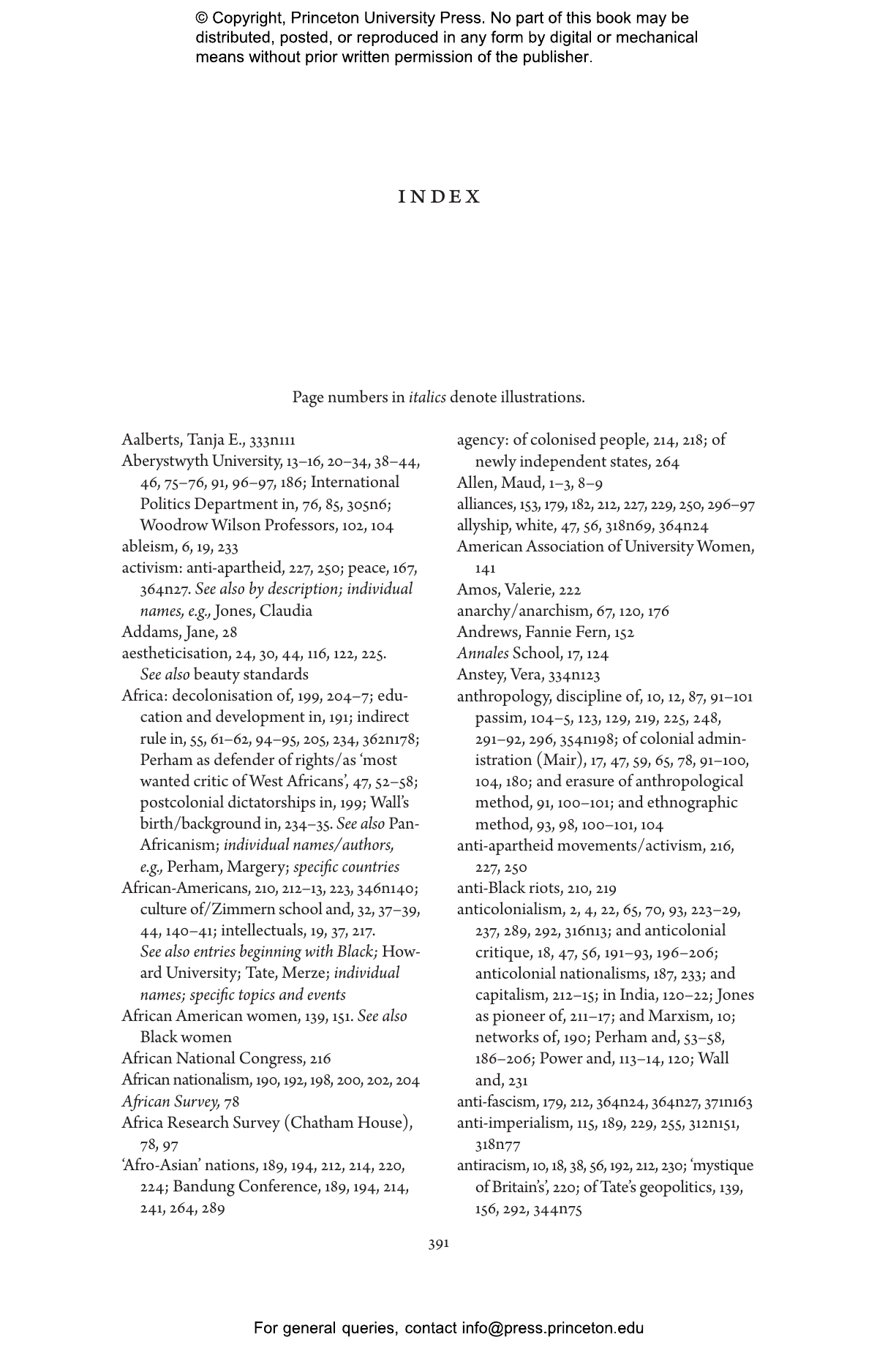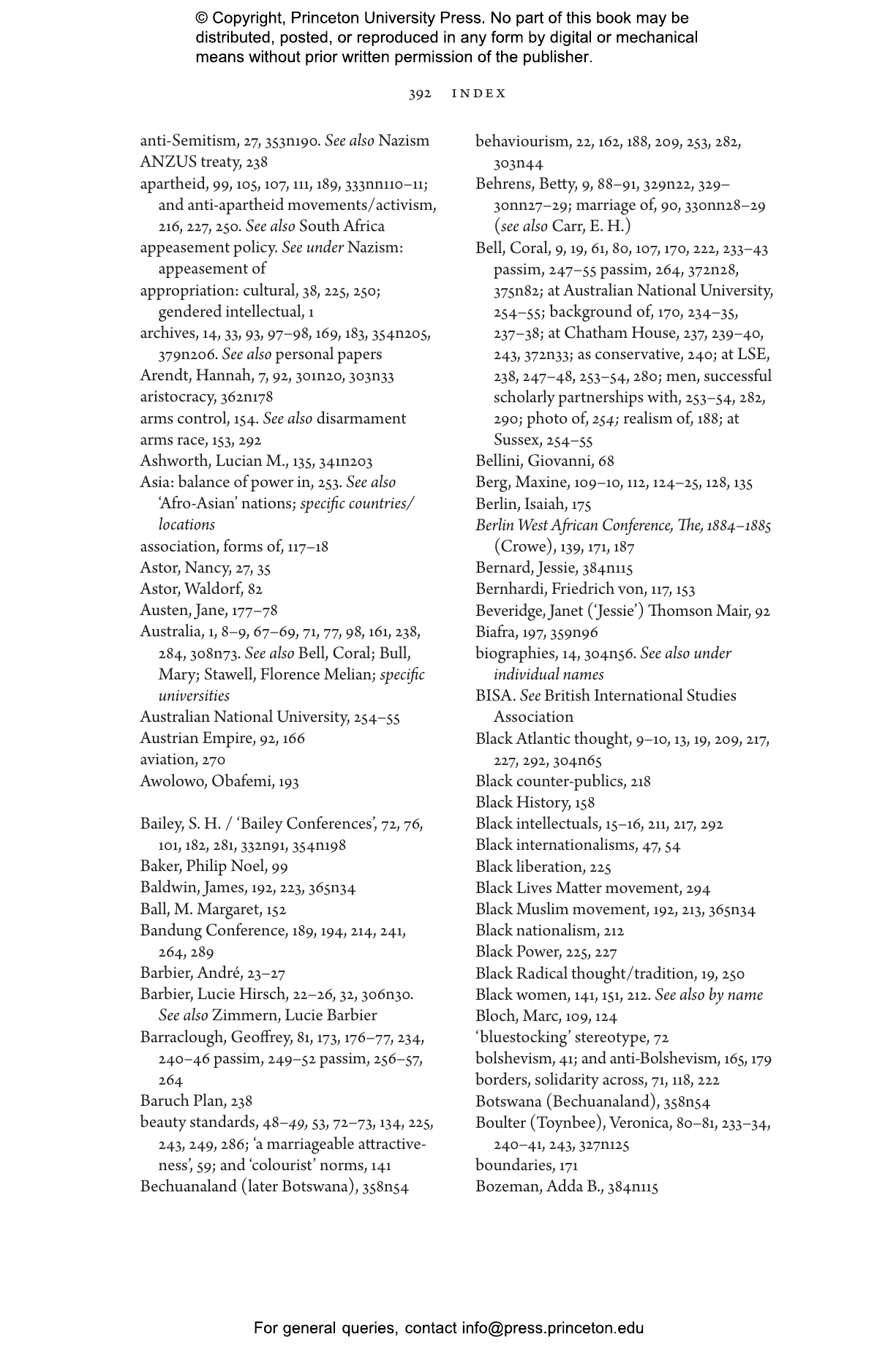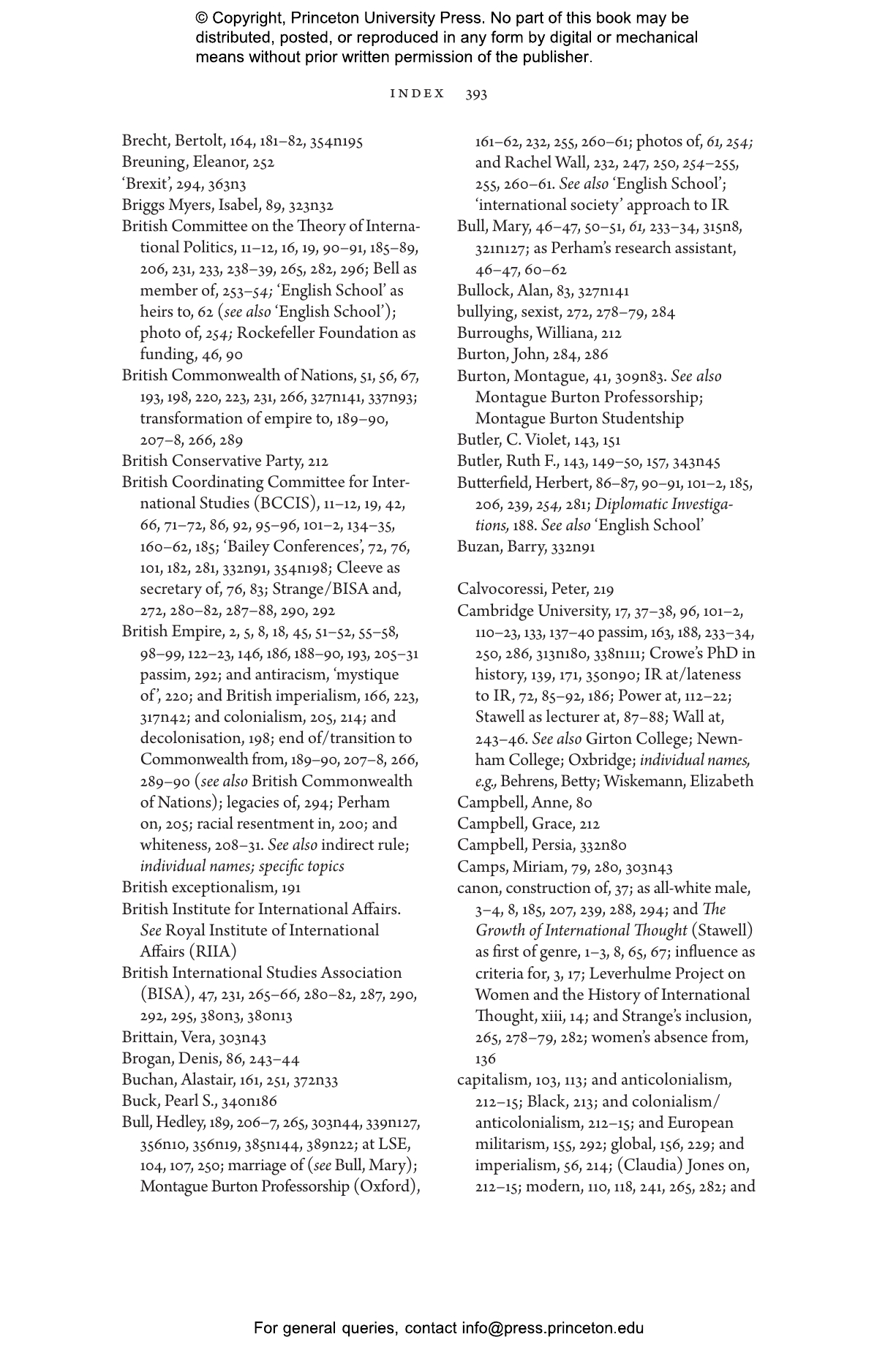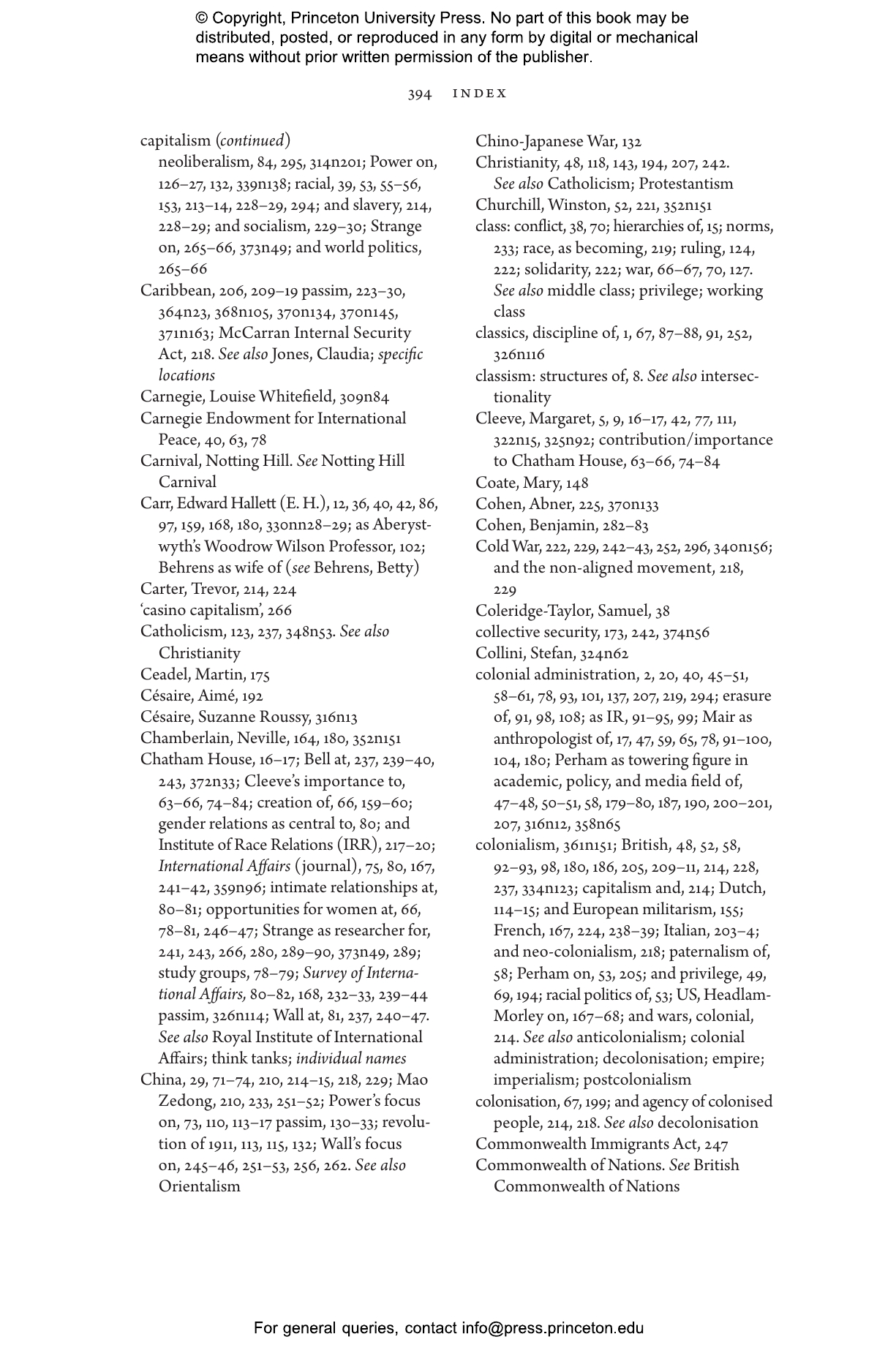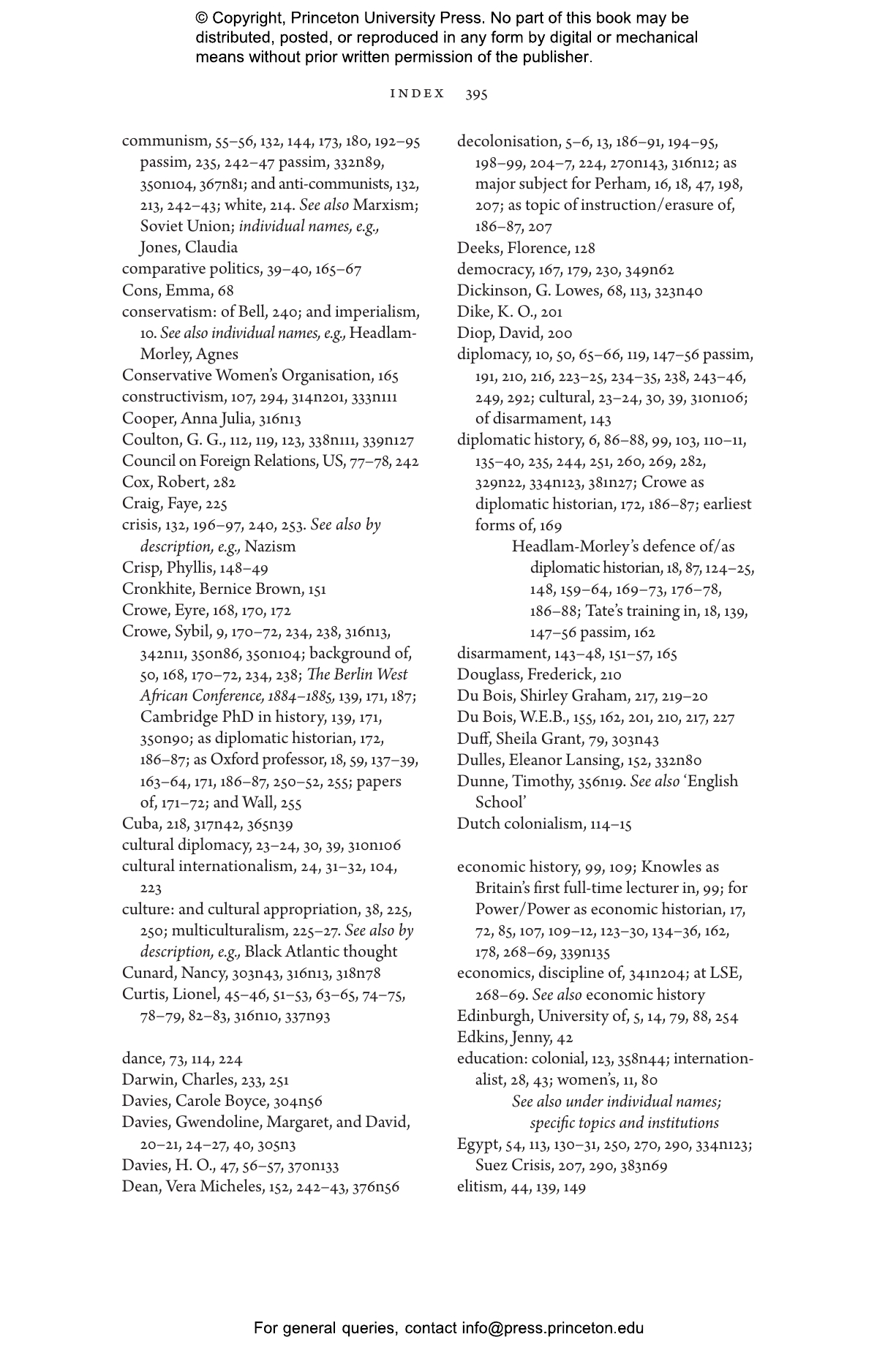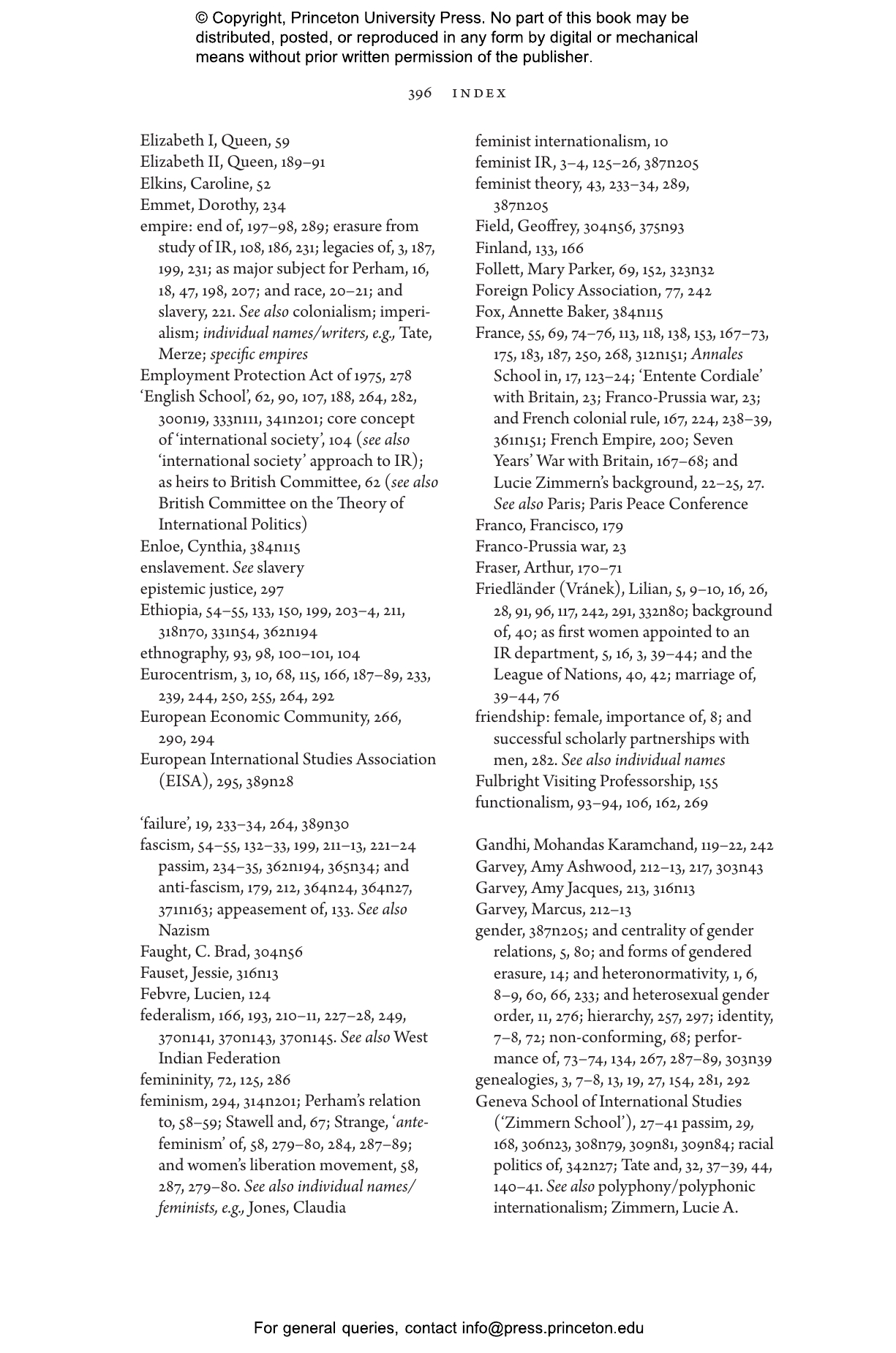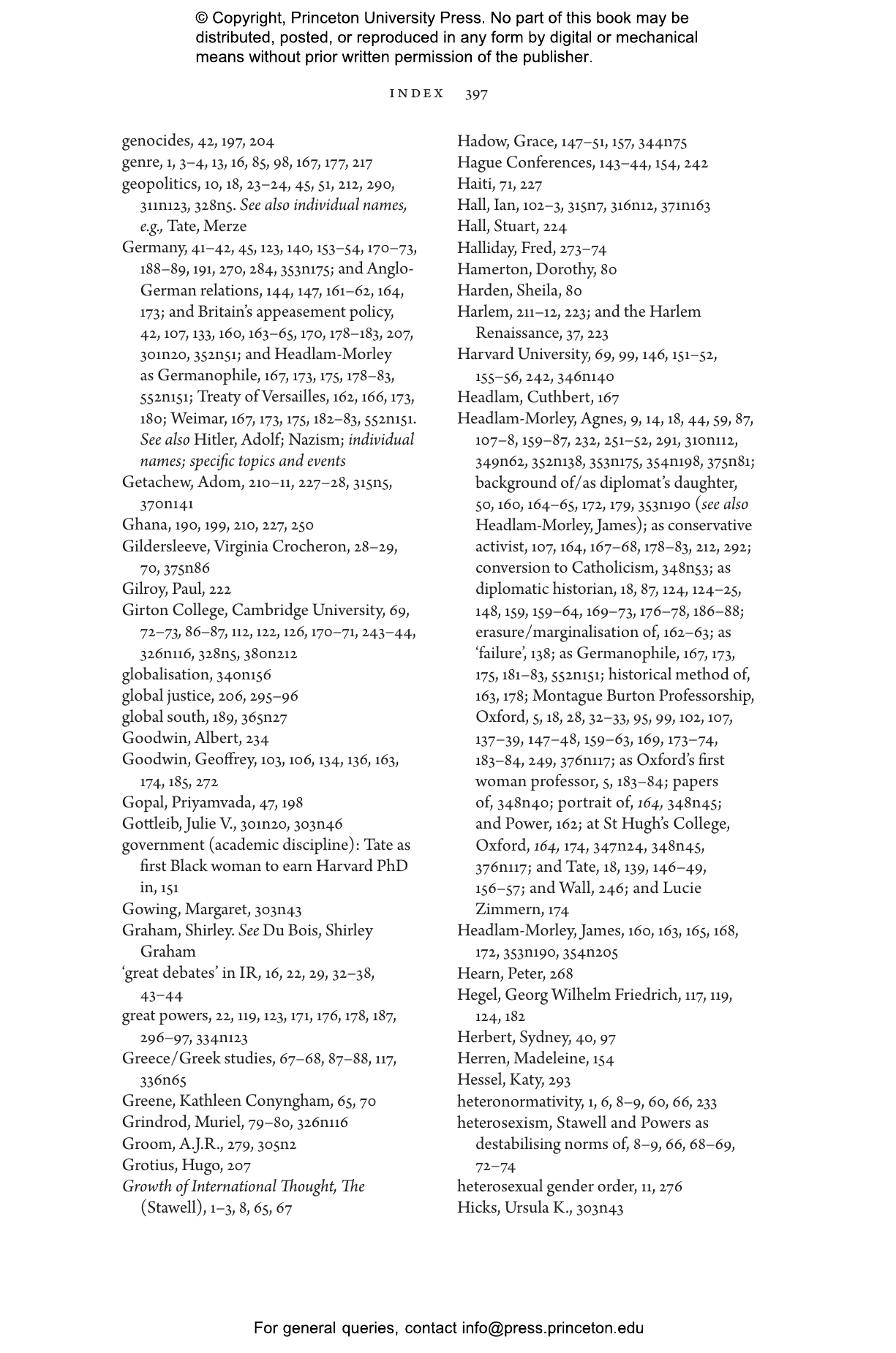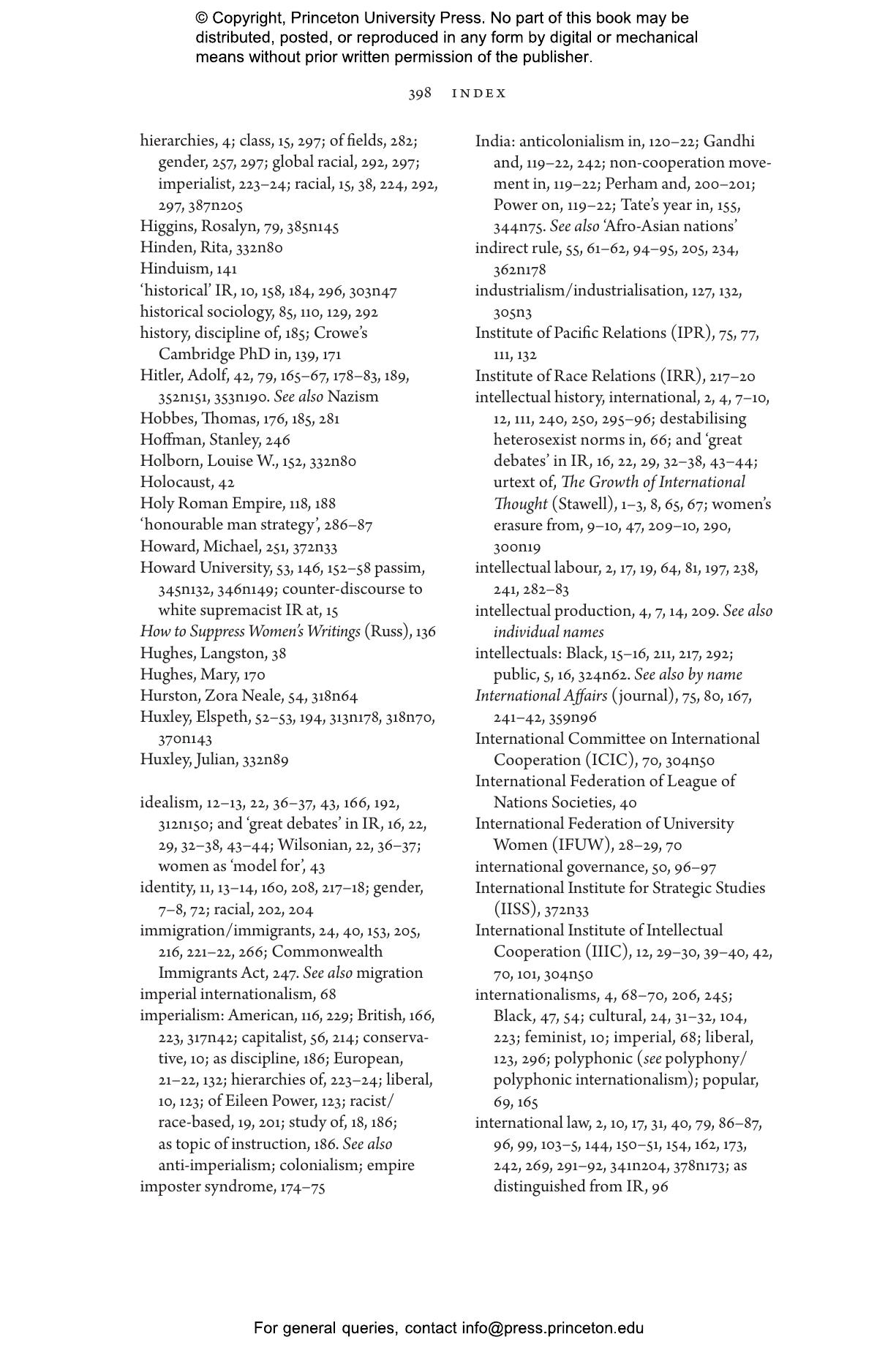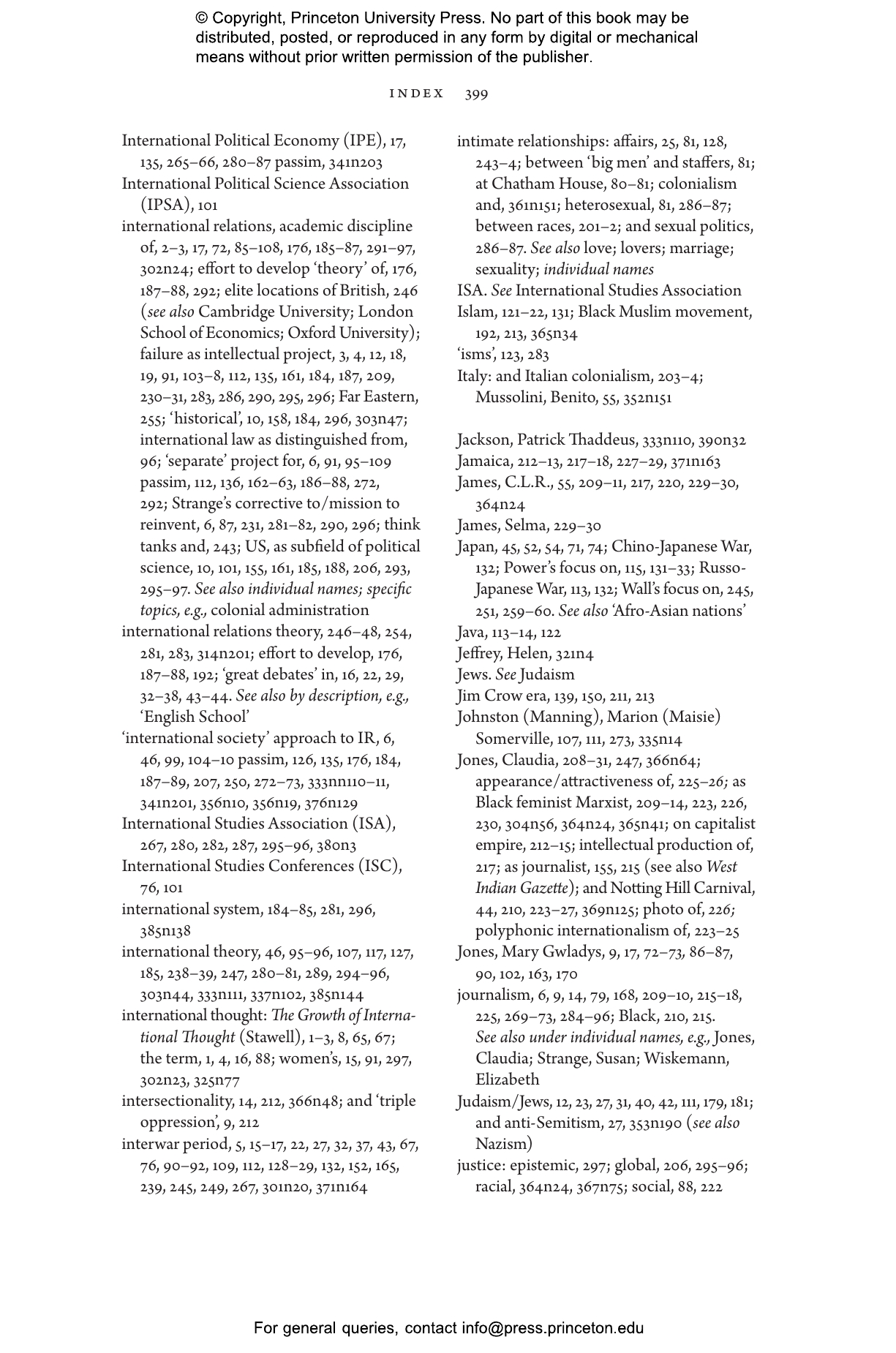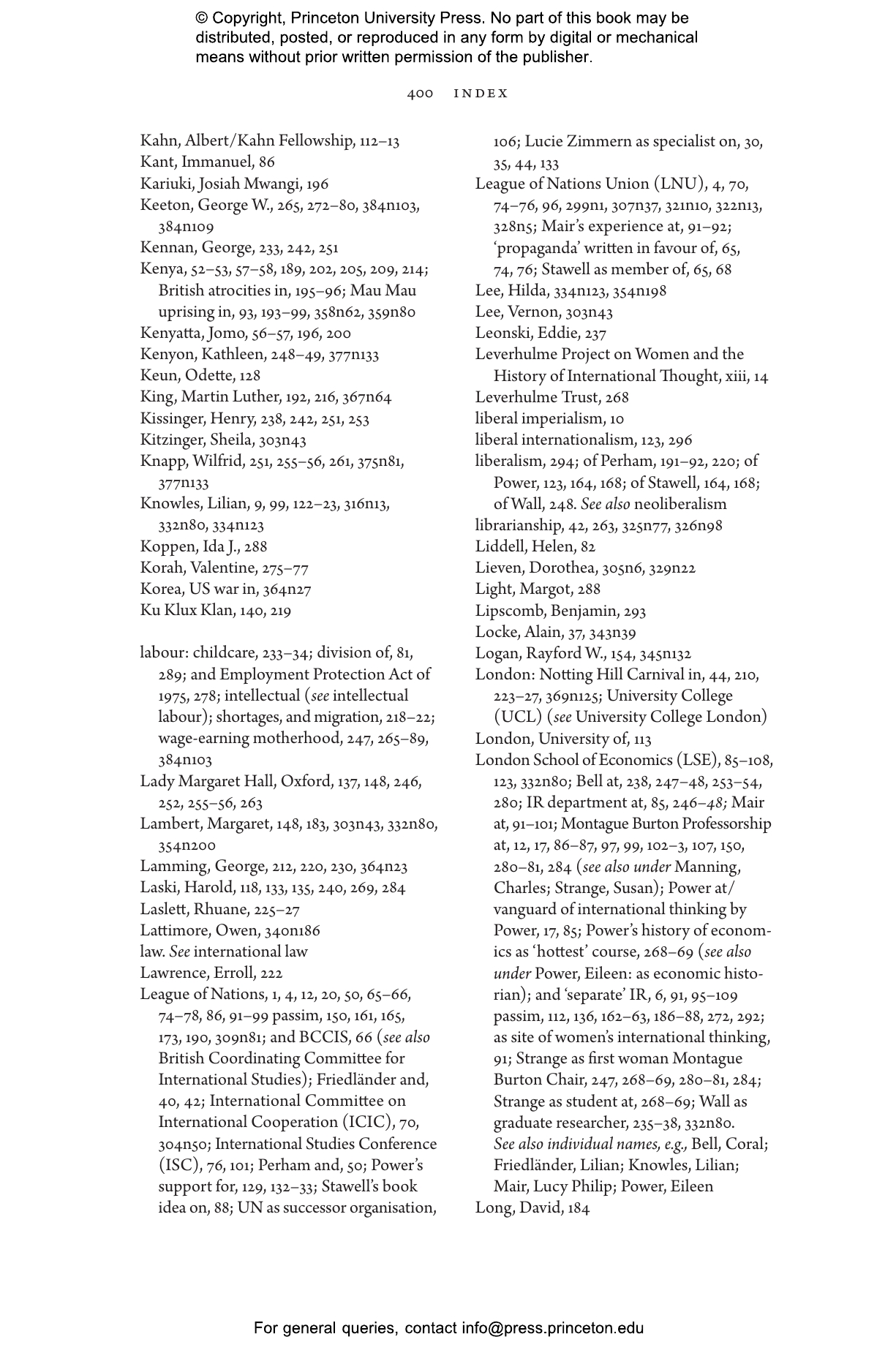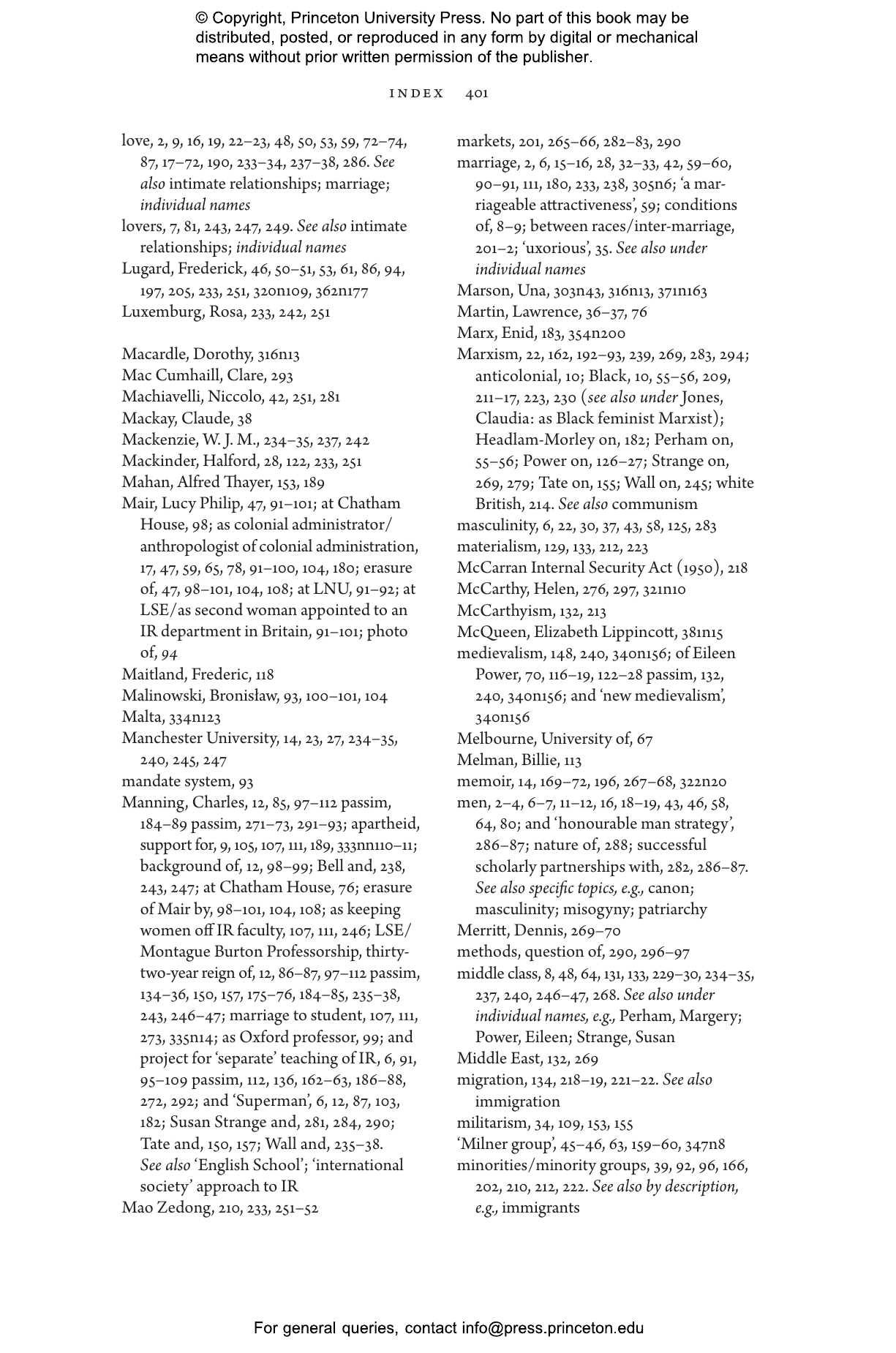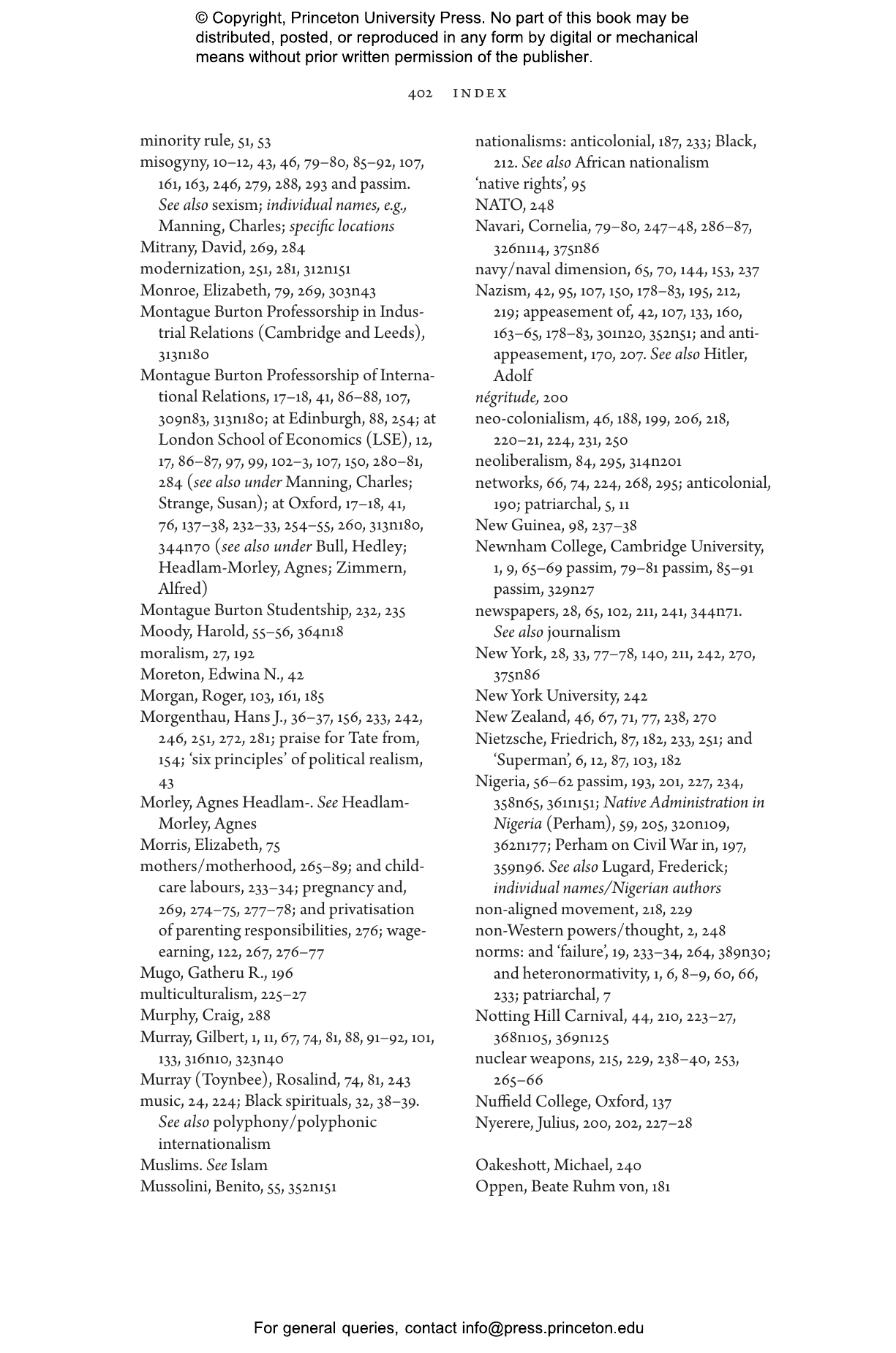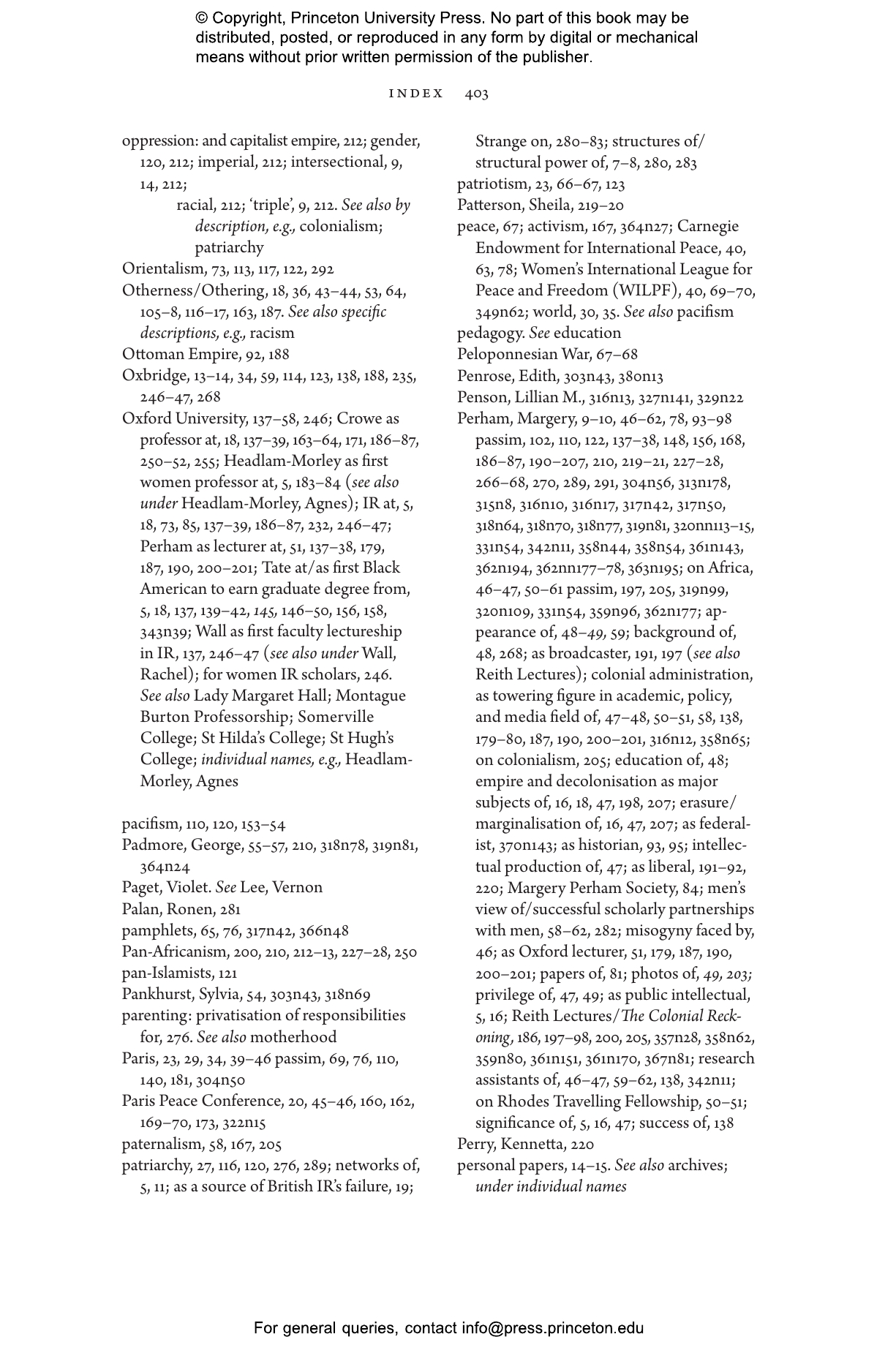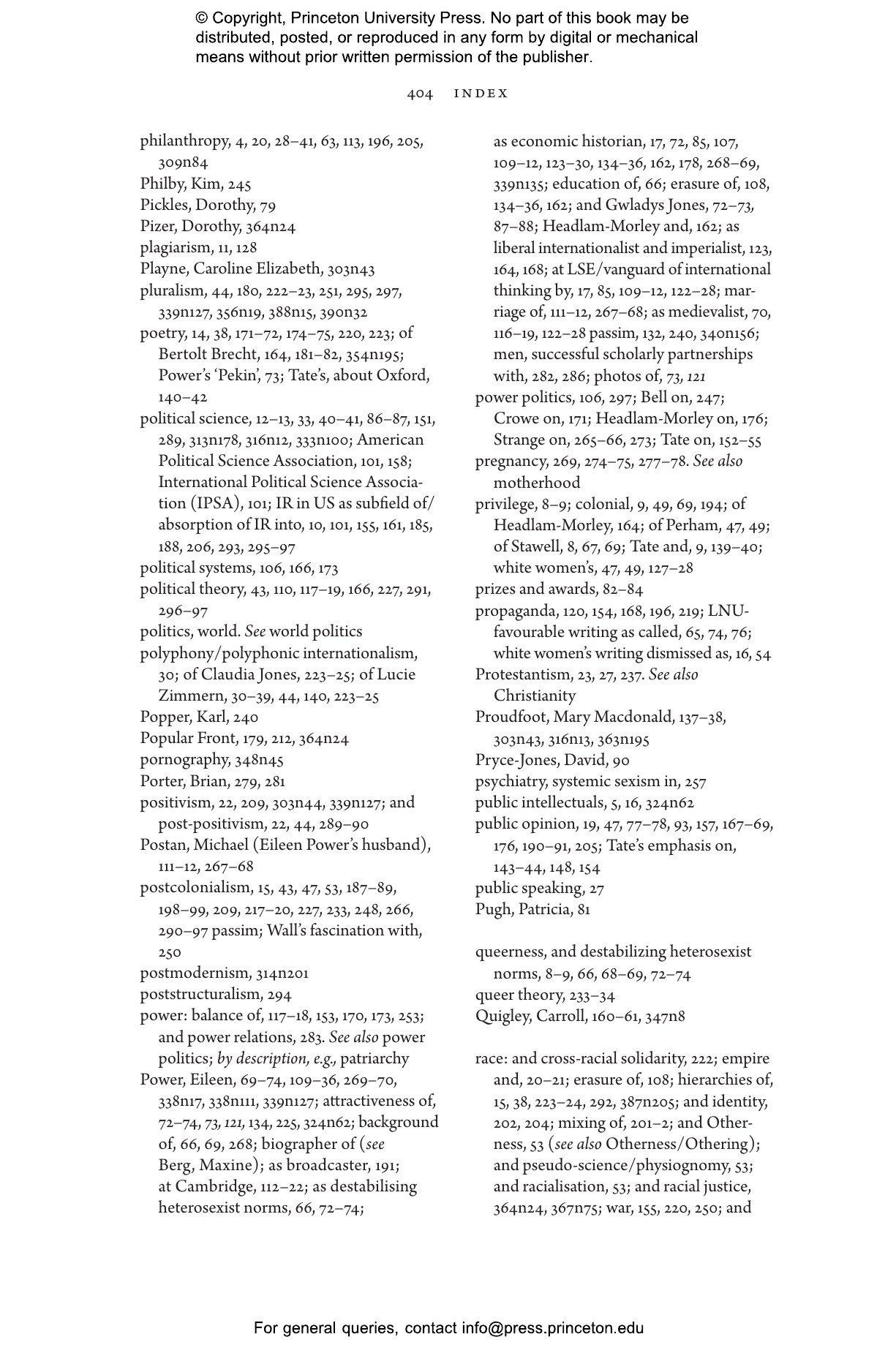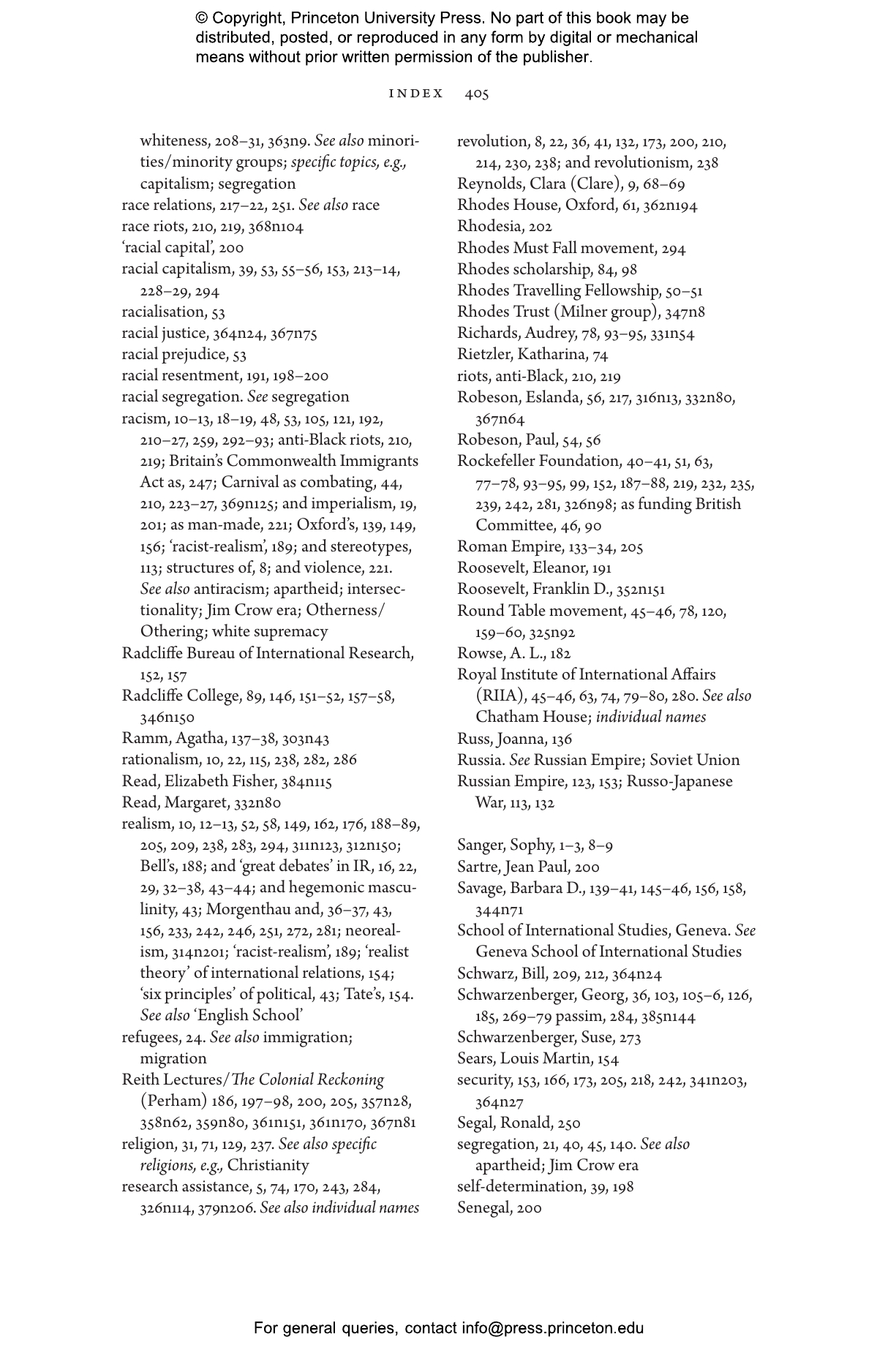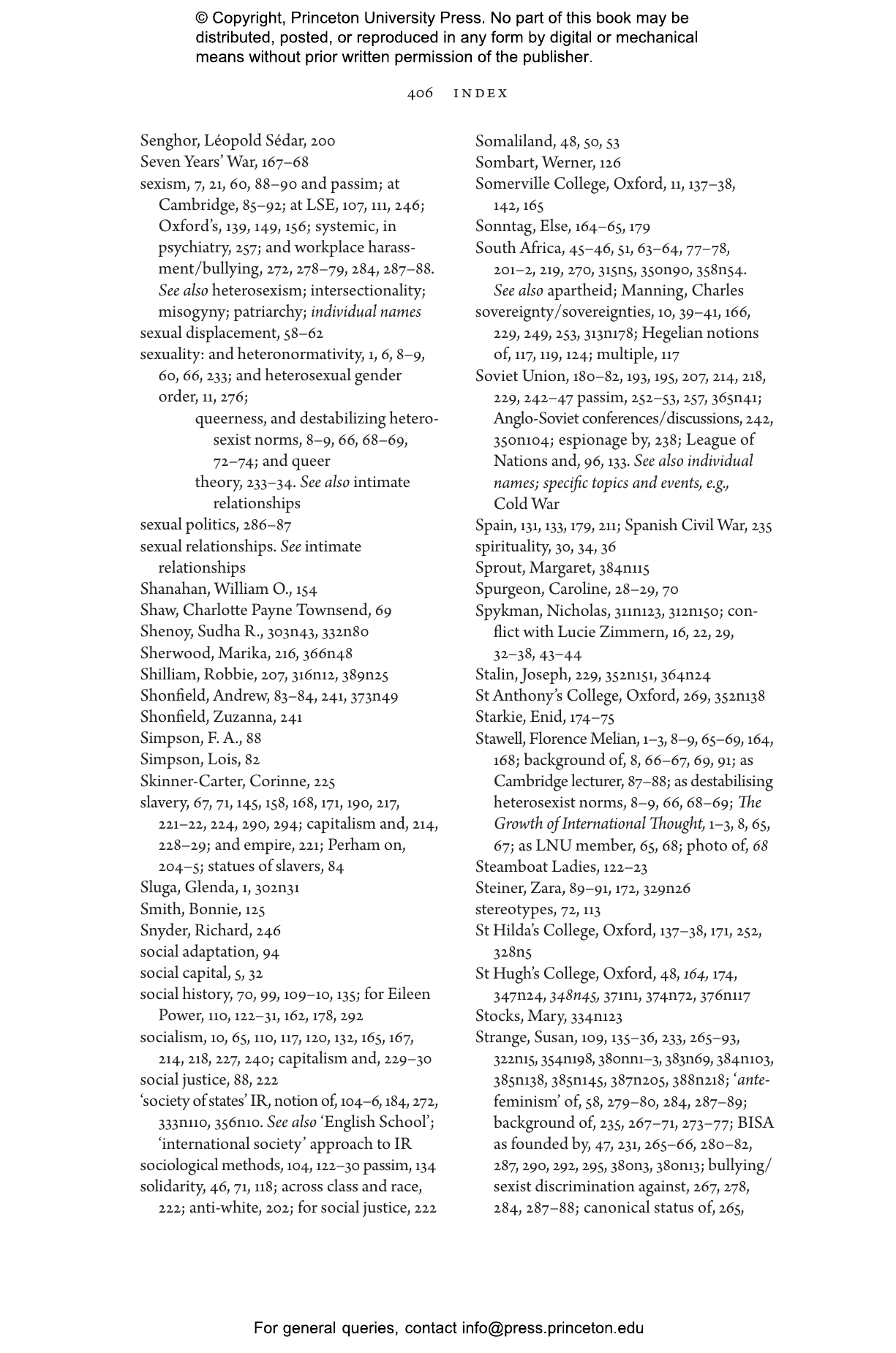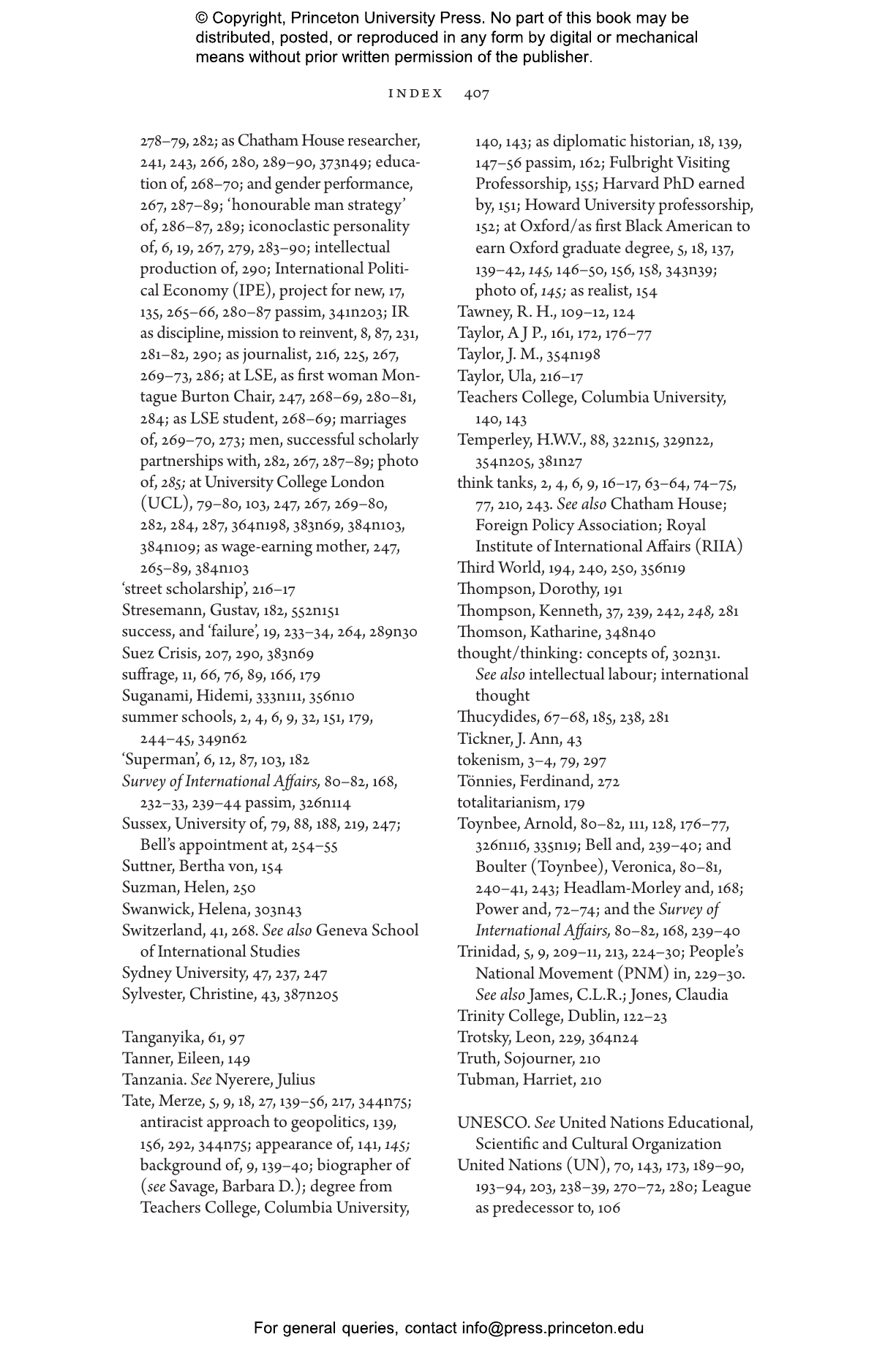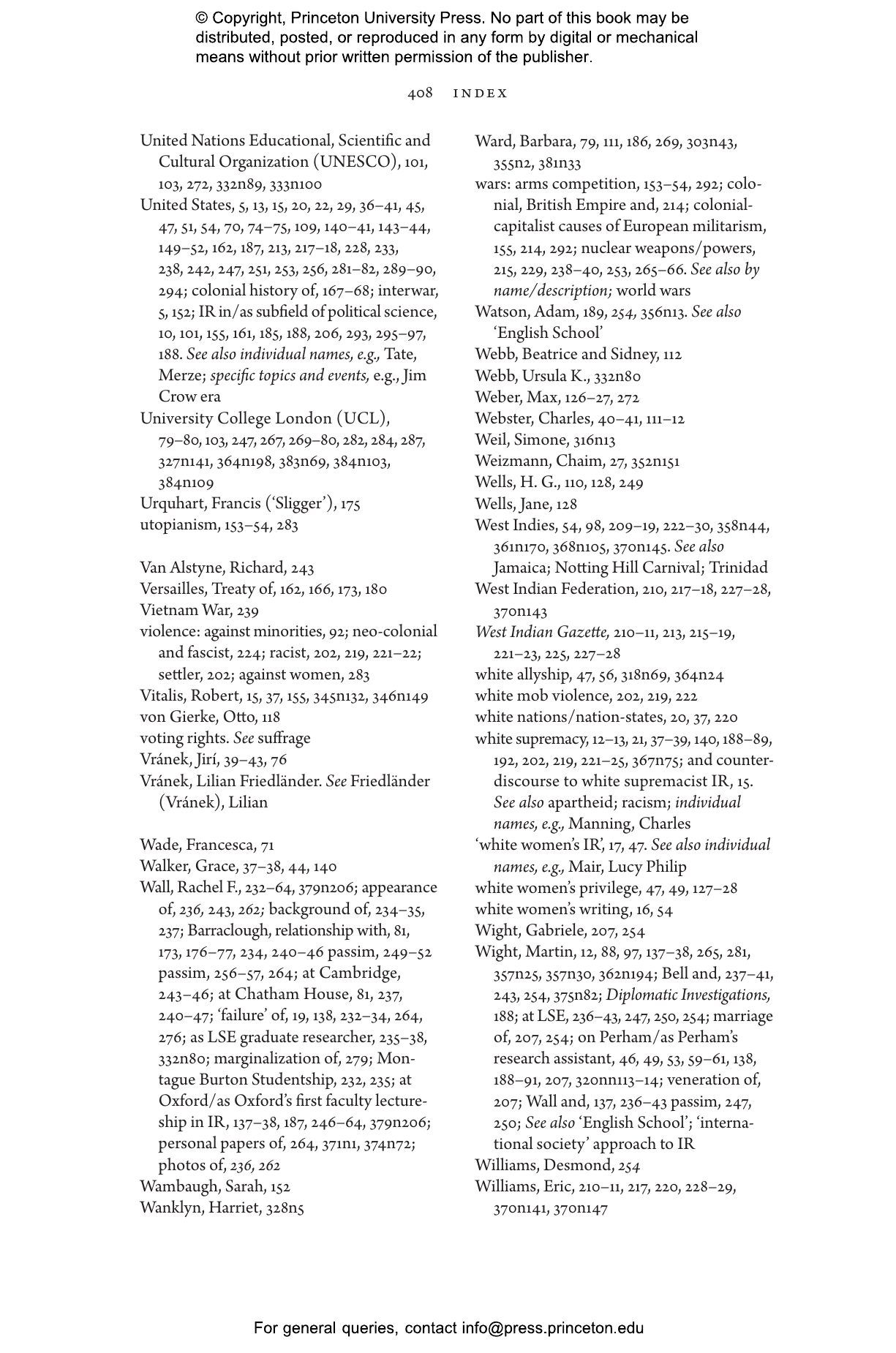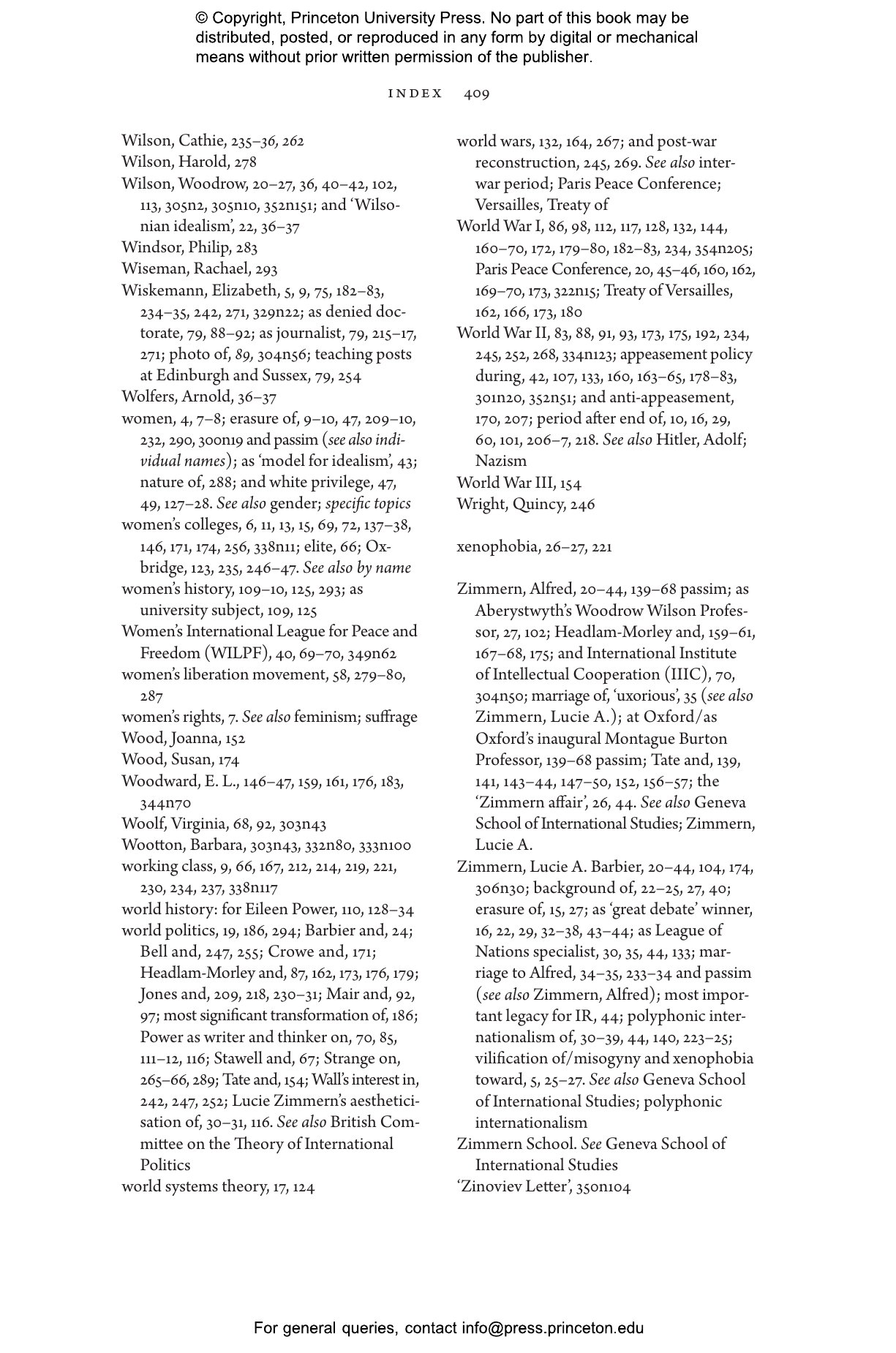The academic field of international relations presents its own history as largely a project of elite white men. And yet women played a prominent role in the creation of this new cross-disciplinary field. In Erased, Patricia Owens shows that, since its beginnings in the early twentieth century, international relations relied on the intellectual labour of women and their expertise on such subjects as empire and colonial administration, anticolonial organising, non-Western powers, and international organisations. Indeed, women were among the leading international thinkers of the era, shaping the development of the field as scholars, journalists, and public intellectuals—and as heterosexual spouses and intimate same-sex partners.
Drawing on a wide range of archival sources, and weaving together personal, institutional, and intellectual narratives, Owens documents key moments and locations in the effort to forge international relations as a separate academic discipline in Britain. She finds that women’s ideas and influence were first marginalised and later devalued, ignored, and erased. Examining the roles played by some of the most important women thinkers in the field, including Margery Perham, Merze Tate, Eileen Power, Margaret Cleeve, Coral Bell, and Susan Strange, Owens traces the intellectual and institutional legacies of misogyny and racism. She argues that the creation of international relations was a highly gendered and racialised project that failed to understand plurality on a worldwide scale. Acknowledging this intellectual failure, and recovering the history of women in the field, points to possible sources for its renewal.
Patricia Owens is professor of international relations at Oxford University and a fellow of Somerville College. She is the author of Between War and Politics: International Relations and the Thought of Hannah Arendt and Economy of Force, and the coeditor of Women’s International Thought: A New History and Women’s International Thought: Toward a New Canon.
"A valuable contribution to feminist and intellectual history."—Kirkus Reviews
“Compelling and impossible to put down, Erased is not just a history of women in international relations, but a history of the difference women made. This book will become a defining text. No one is as ambitious in their critique or their method as Patricia Owens.”—Glenda Sluga, author of The Invention of International Order
“Erased is an exceptionally researched treasure trove of discoveries and insights casting indispensable light on how the field of international relations formed in the twentieth century—and how it could have formed had the thoughts of these women not fallen into the dustbin of history. Writing the archive alive, Patricia Owens provides a monumental challenge for us all to rethink the history of international thought, the significance of structures of inequality, the difference that humans and their texts can make, and indeed how we ourselves choose to write.”—Lene Hansen, University of Copenhagen
“In a feat of archival research, historical analysis, and lucid exposition, Patricia Owens provides an original and fascinating political history of international relations as a gendered and racialized field through the geopolitical biographies of women otherwise erased by the very fields of international thought they shaped. Erased details the complex interplay of intimate, political, social, and economic relations that inform the hierarchies of knowledge production, illuminating the extent of our loss if we continue to erase and ignore the resources of spirit and intellect these women offer in word and deed.”—Helen M. Kinsella, author of The Image before the Weapon: A Critical History of the Distinction between Combatant and Civilian
"Patricia Owens has reimagined the history of international thought in an ambitious reappraisal driven by the ideas, lives and struggles of a fascinating cohort of brilliant women intellectuals. Her extraordinary and comprehensive account of this diverse group of thinkers restores them to their rightful place at the very center of the study of international relations, and for that, we are all in her debt.”—Barbara D. Savage, author of Merze Tate: The Global Odyssey of a Black Woman Scholar
“Patricia Owens weaves an admirably lucid narrative of exceptional power from a novel effort of historical re(dis)covery. Elegant and attention-grabbing, Erased sets new standards for critical disciplinary histories in the social sciences.”—David Armitage, author of Foundations of Modern International Thought


